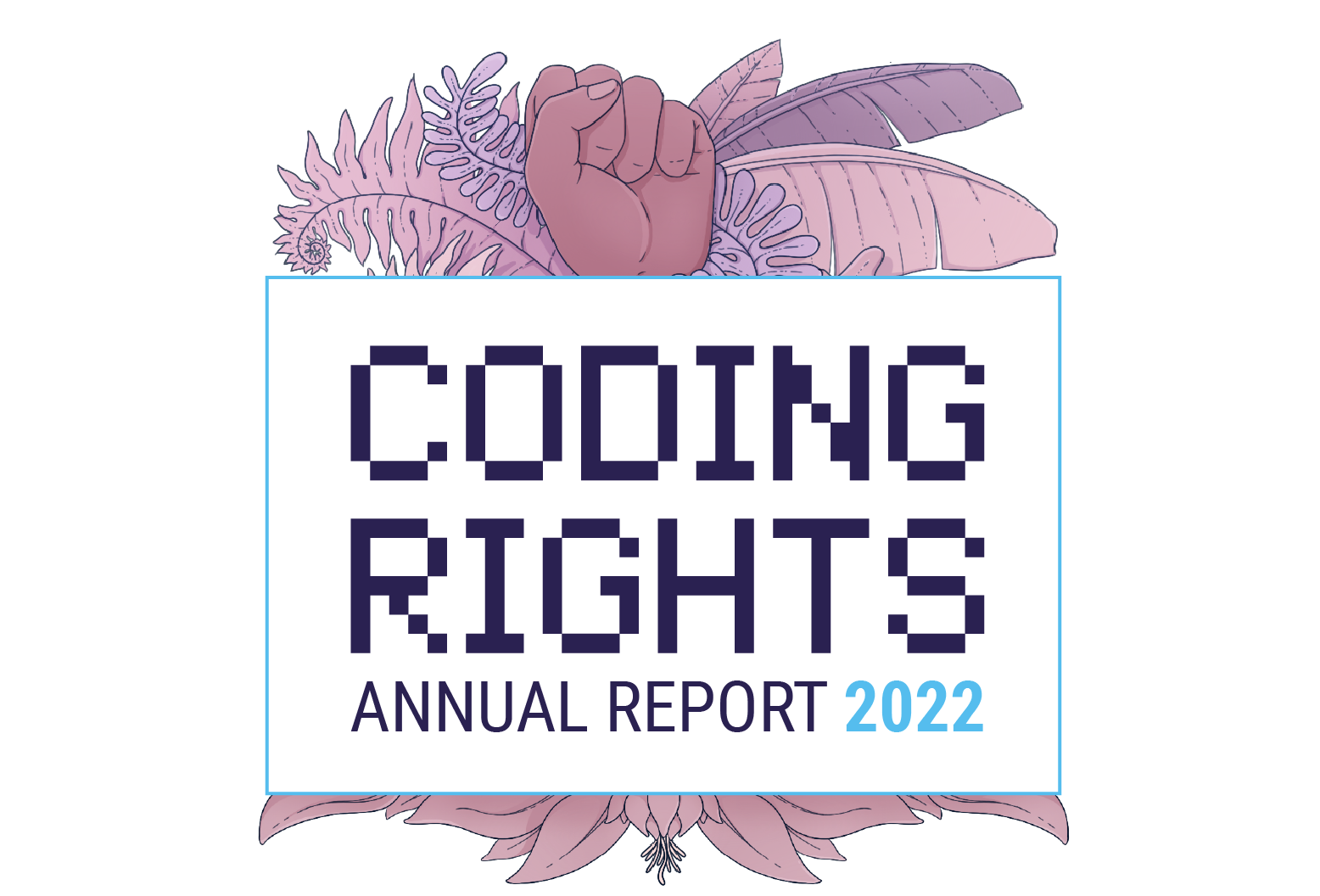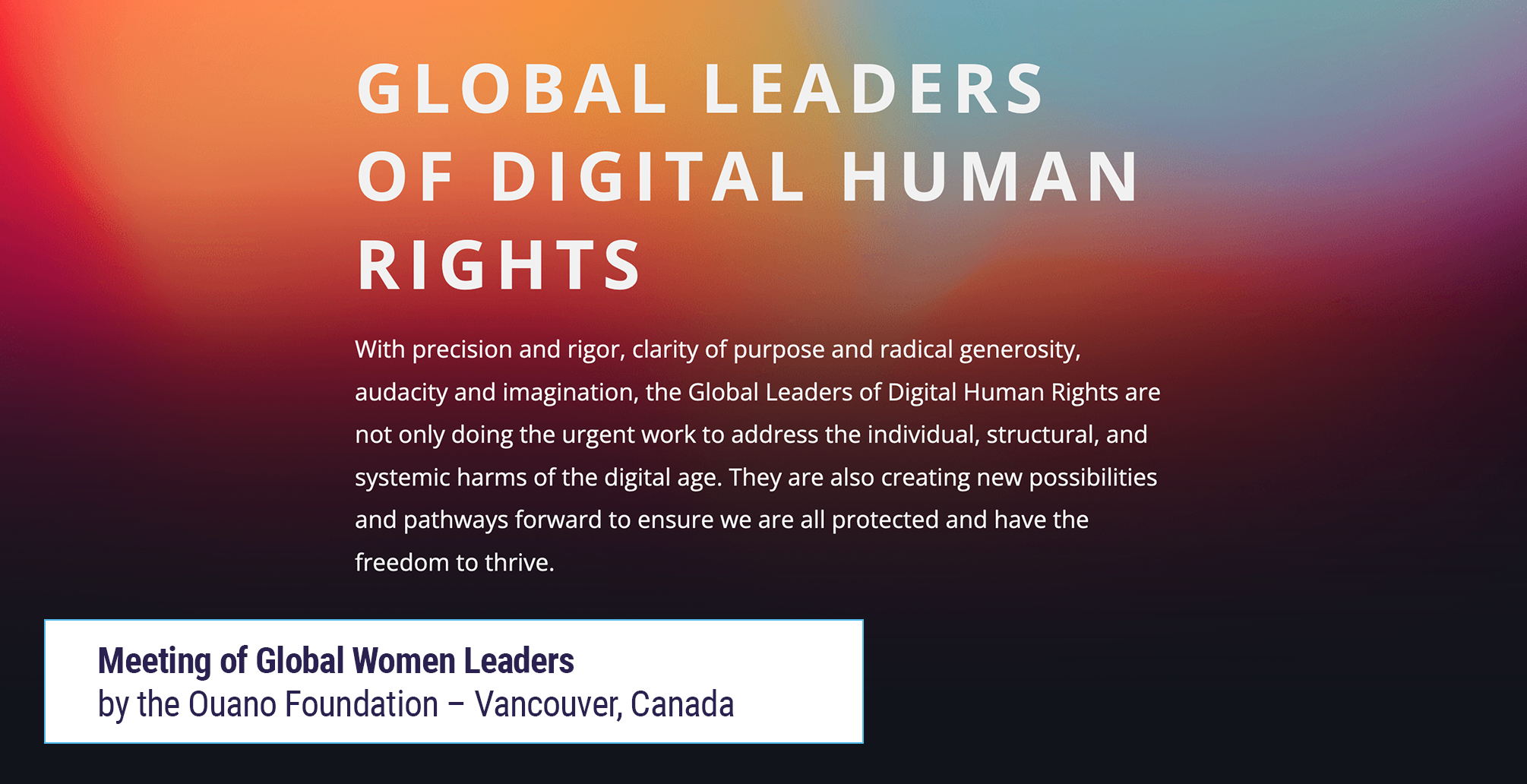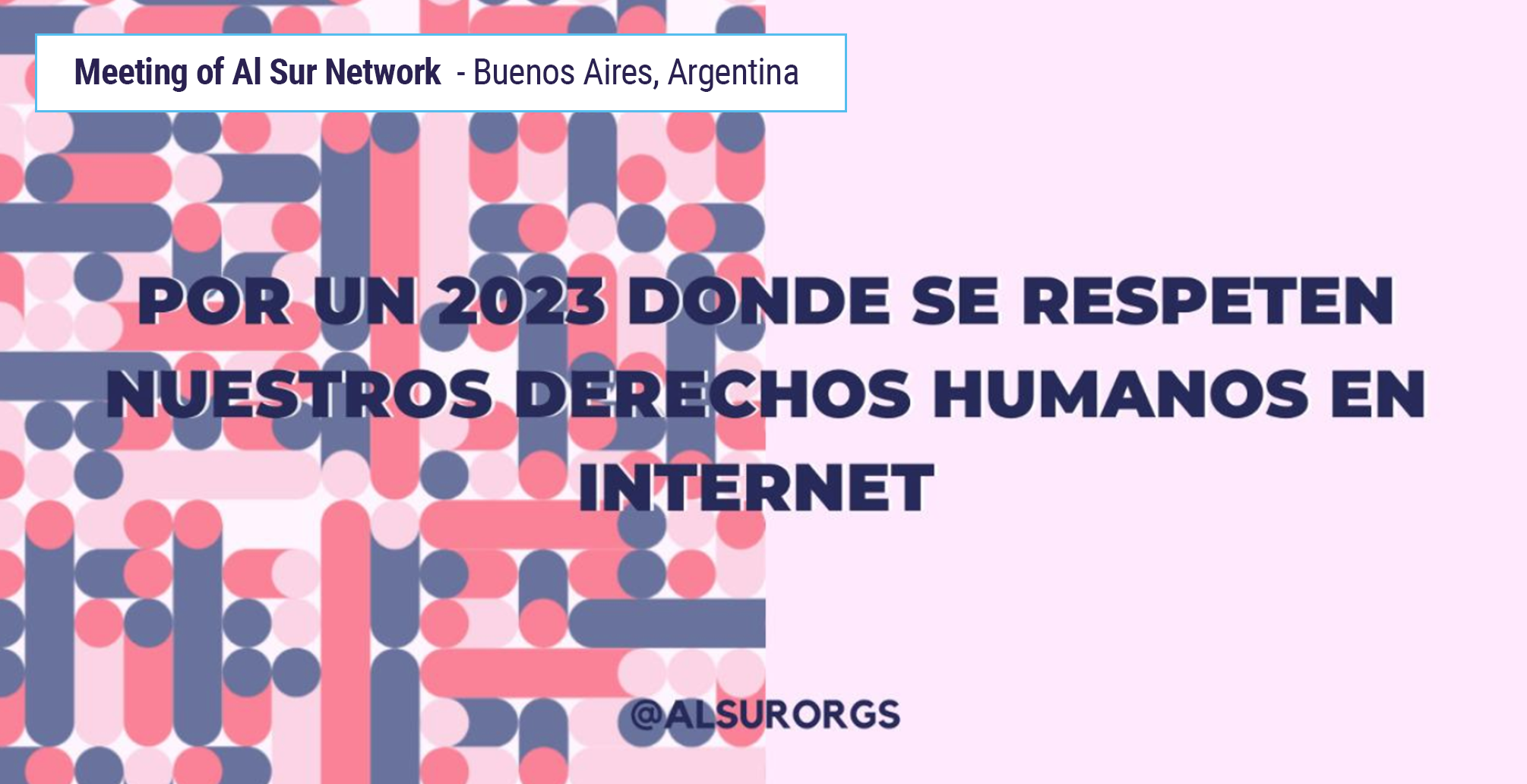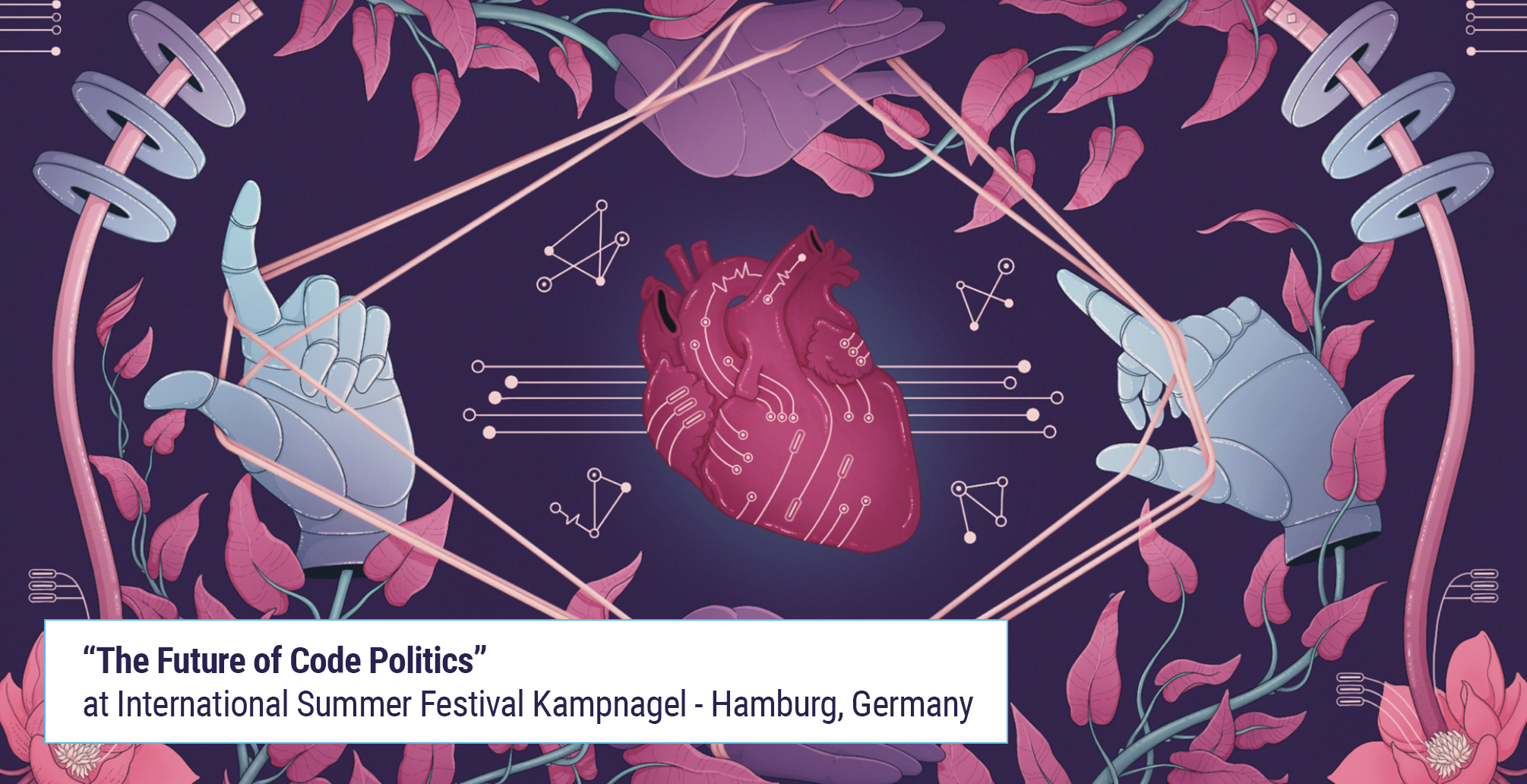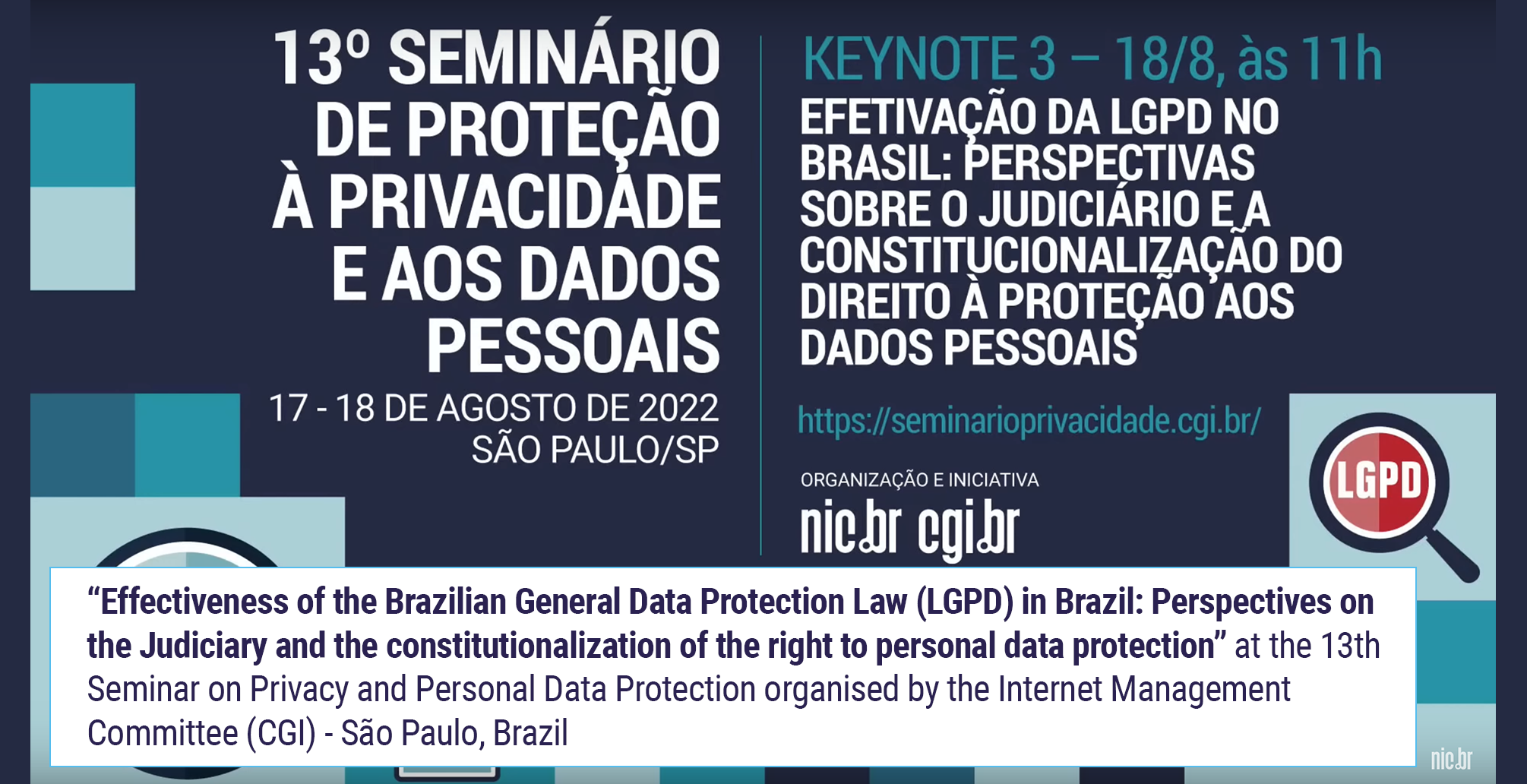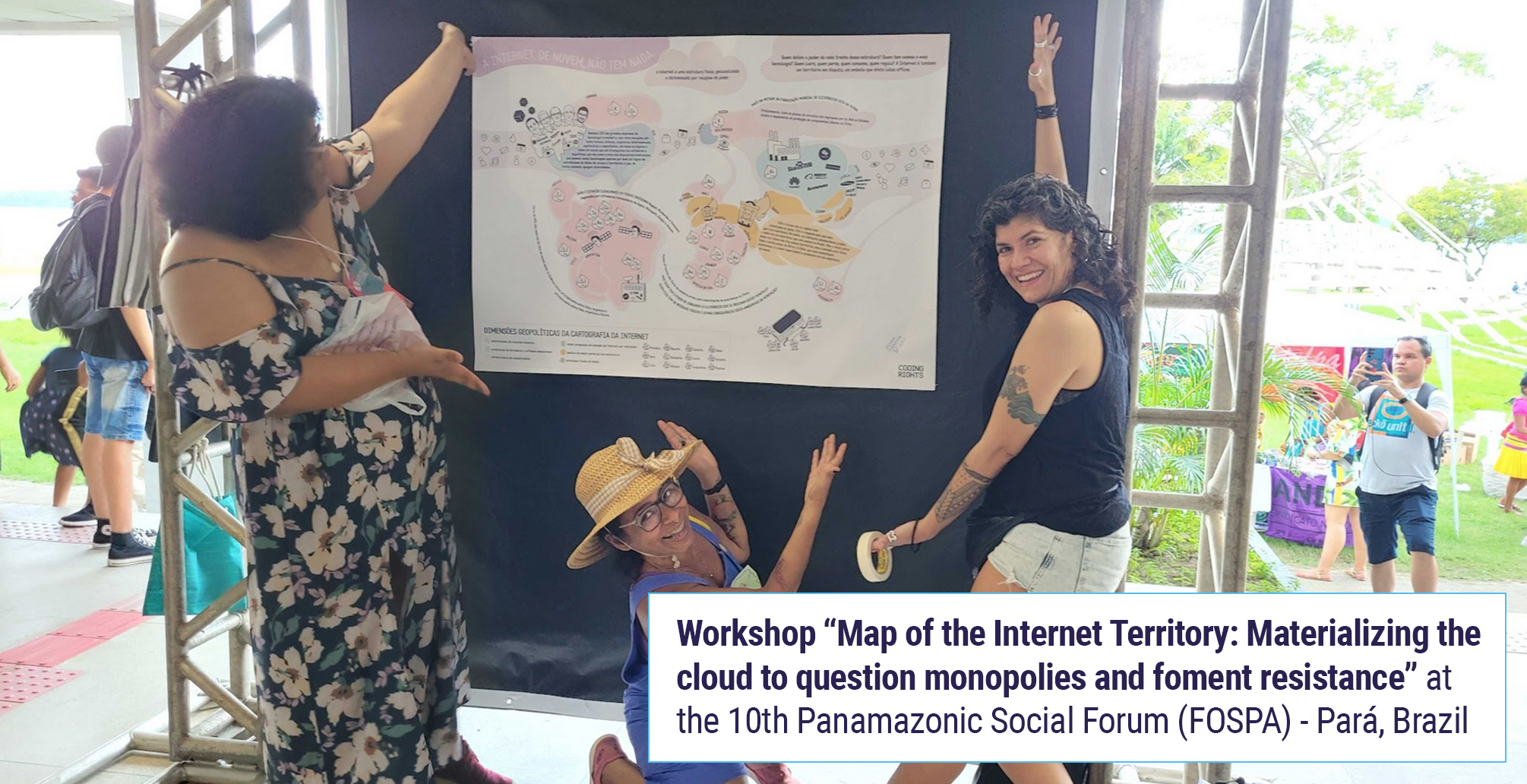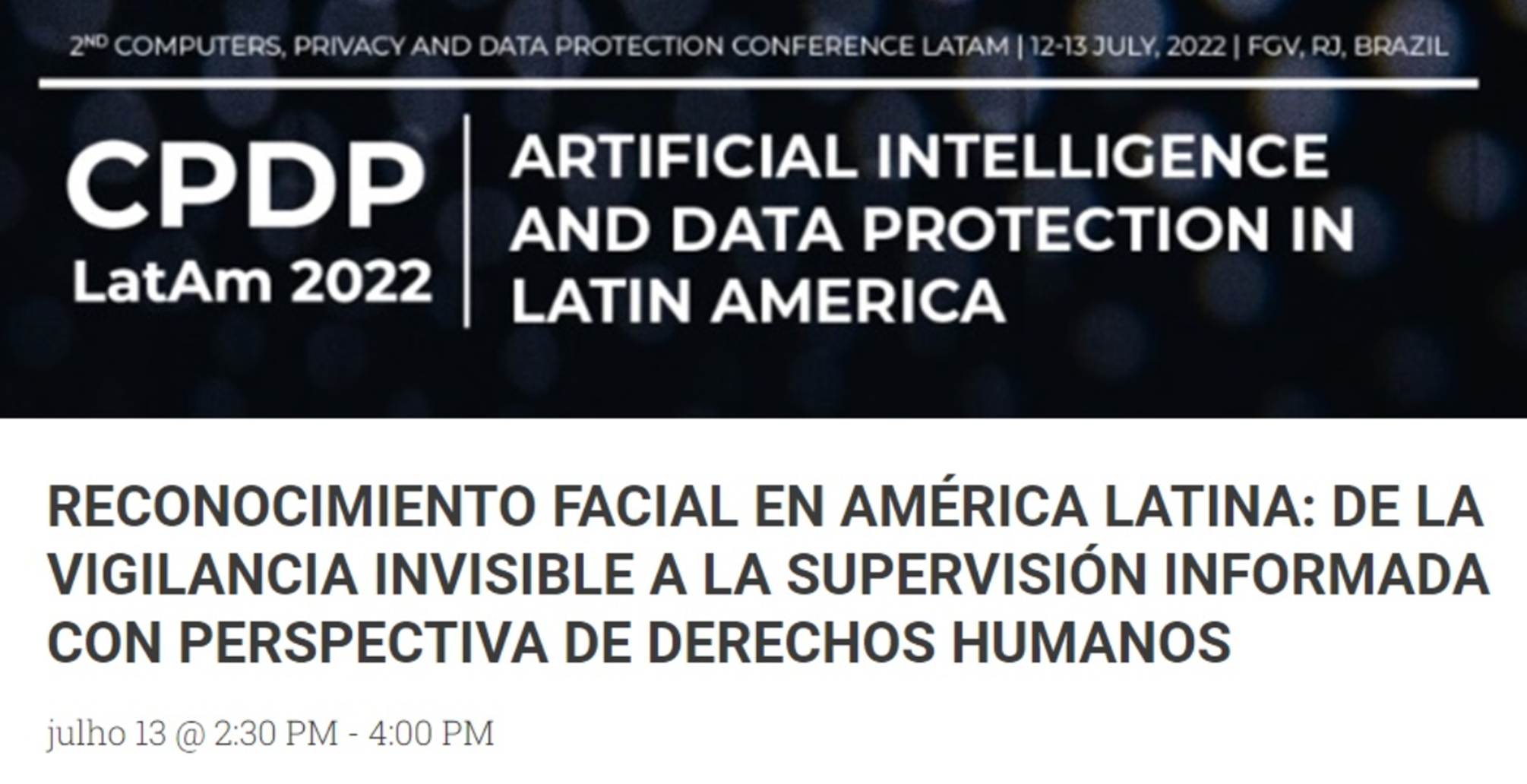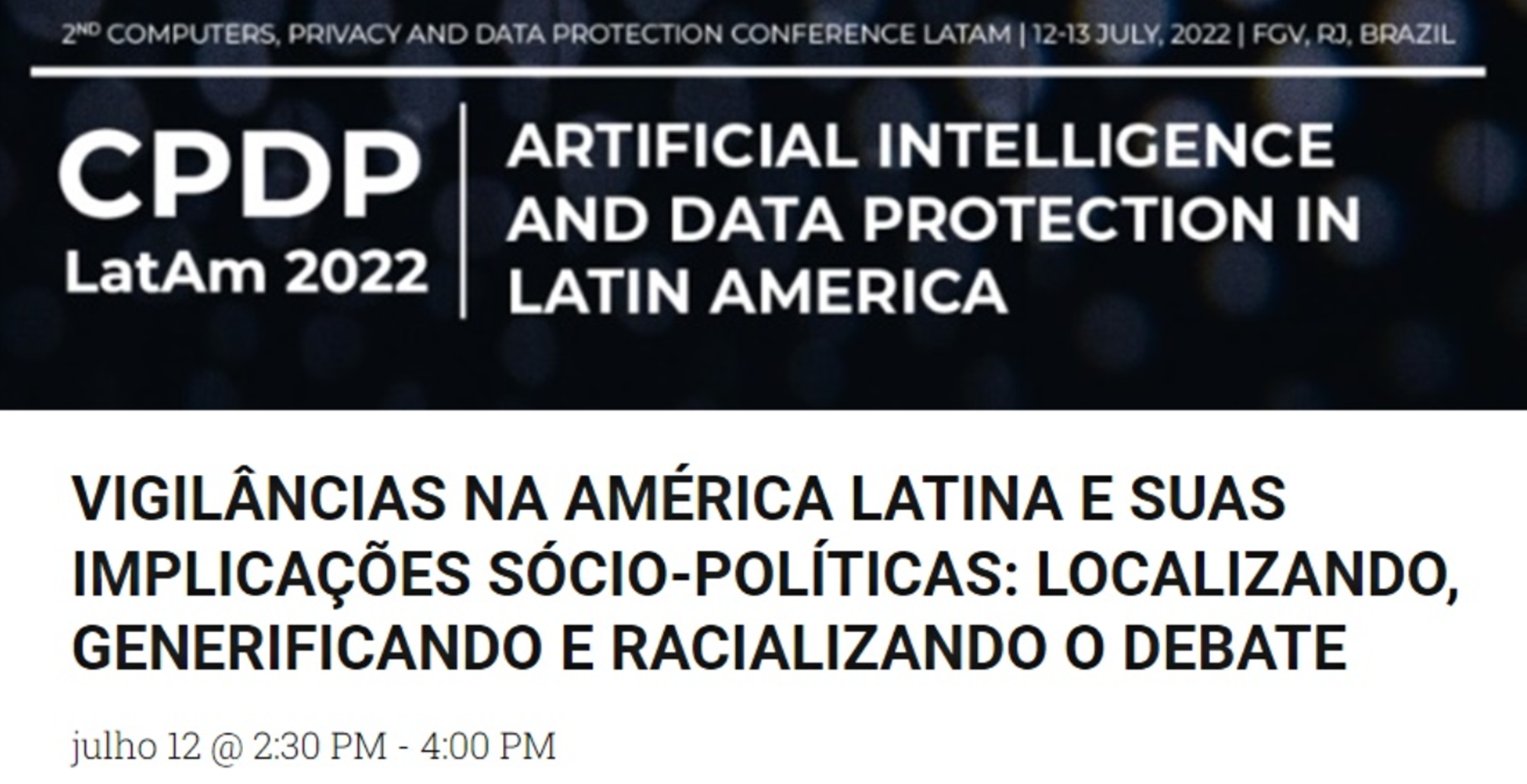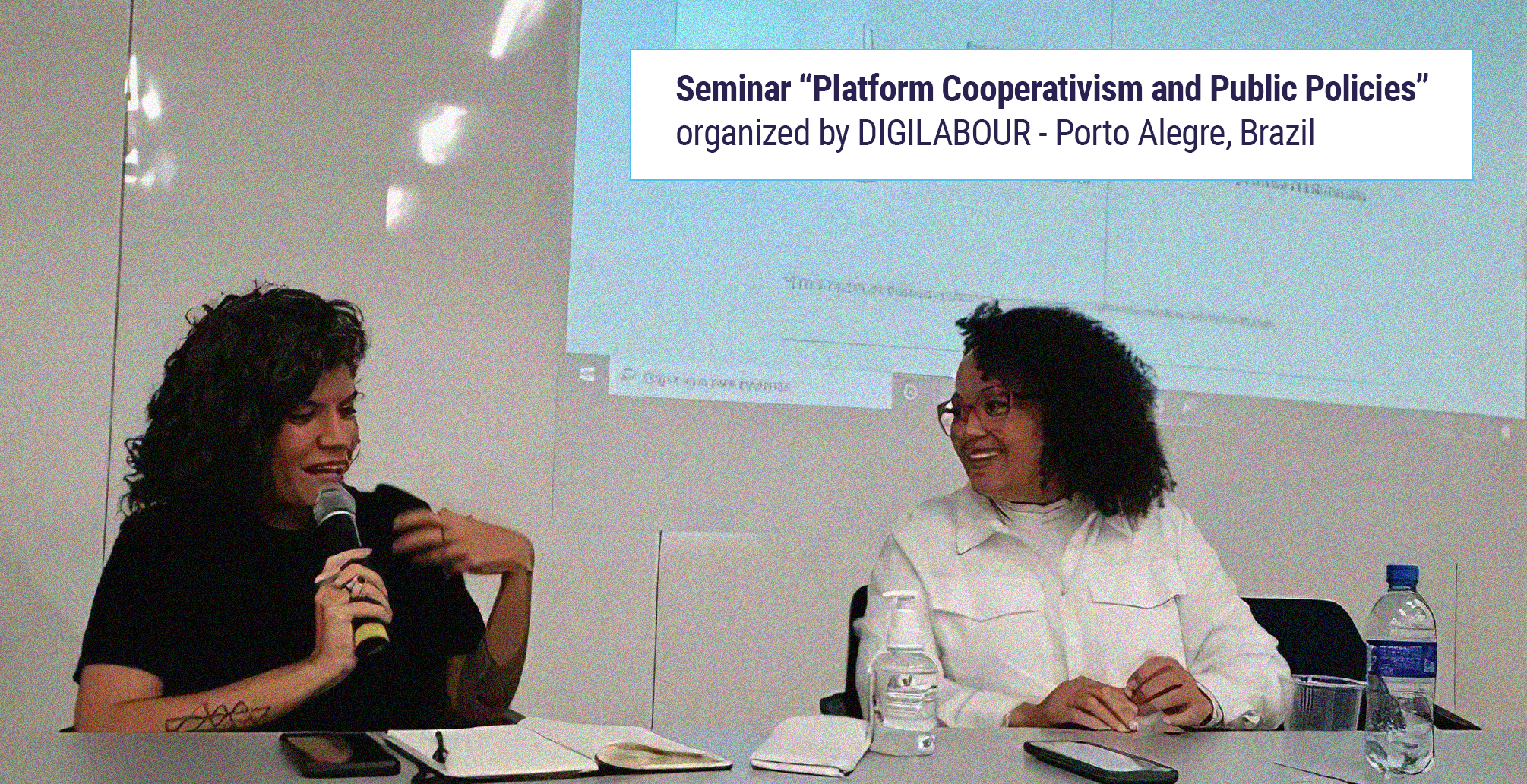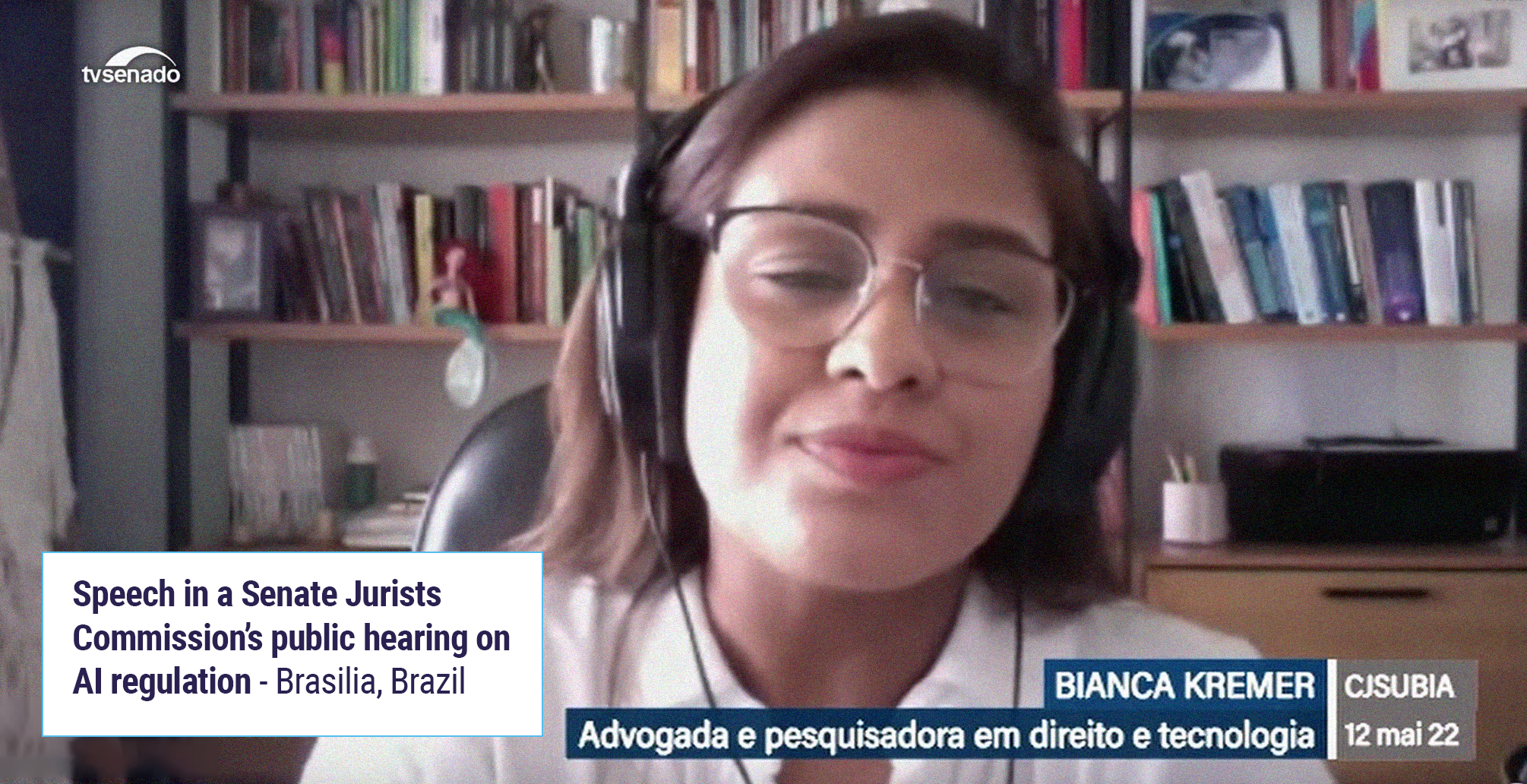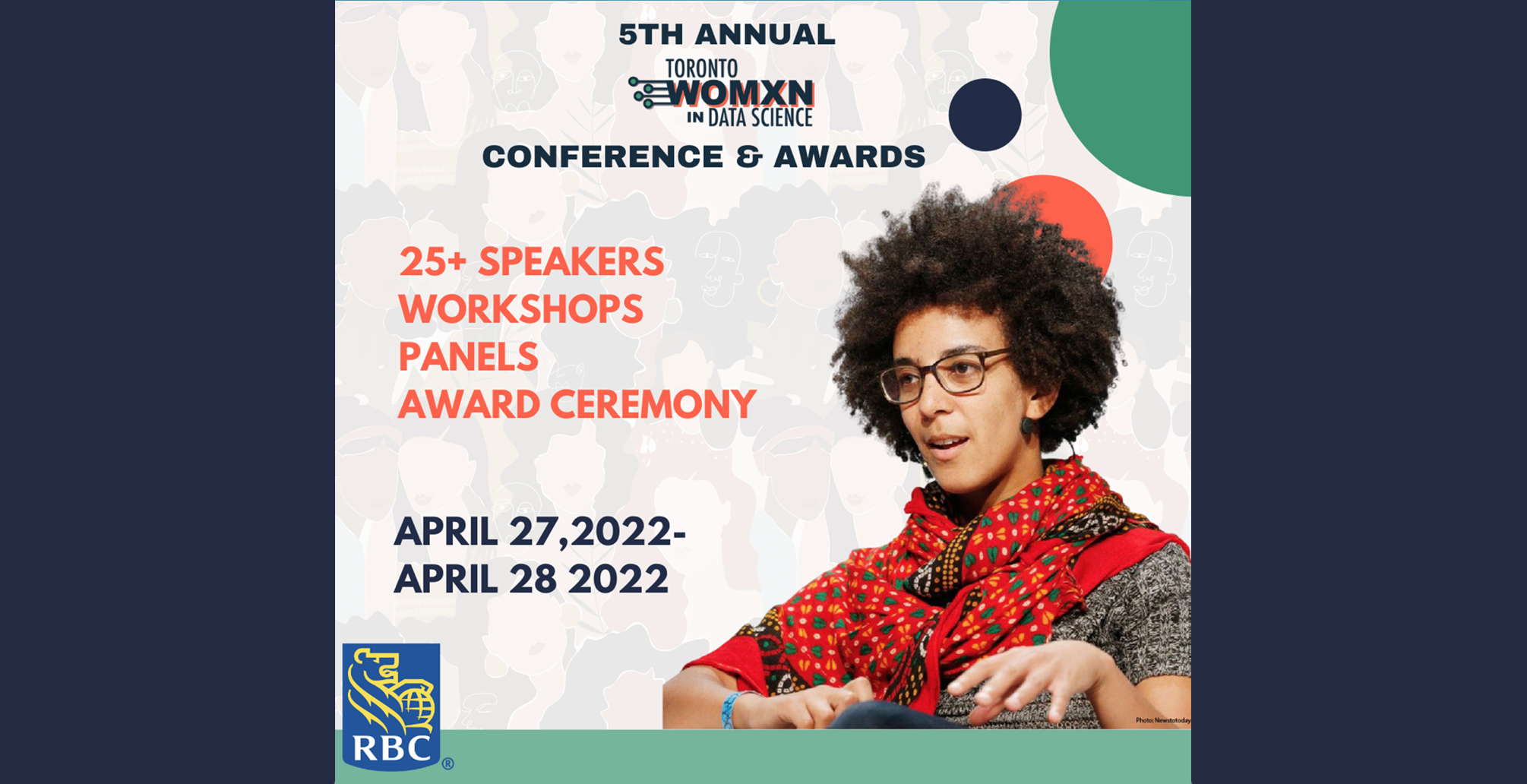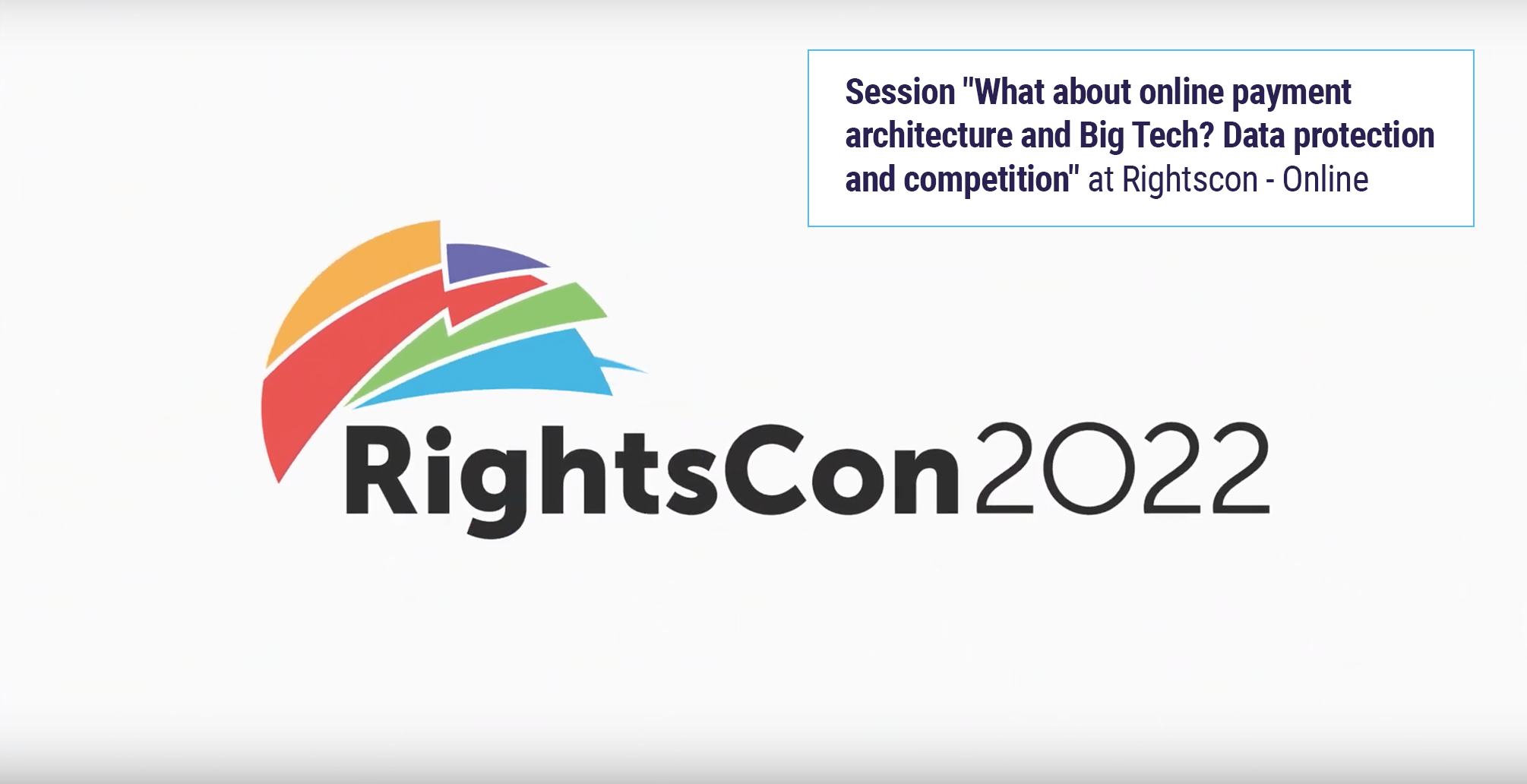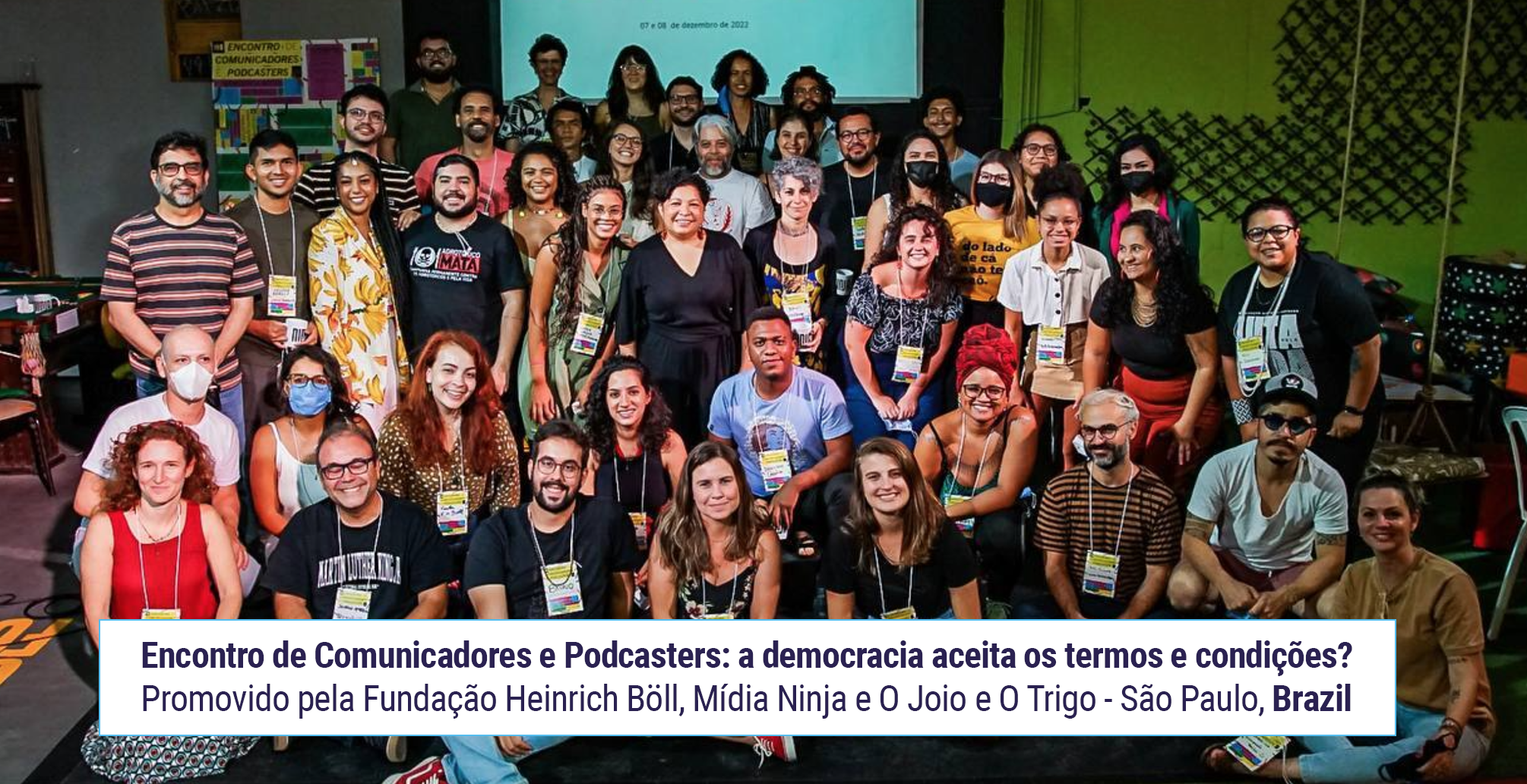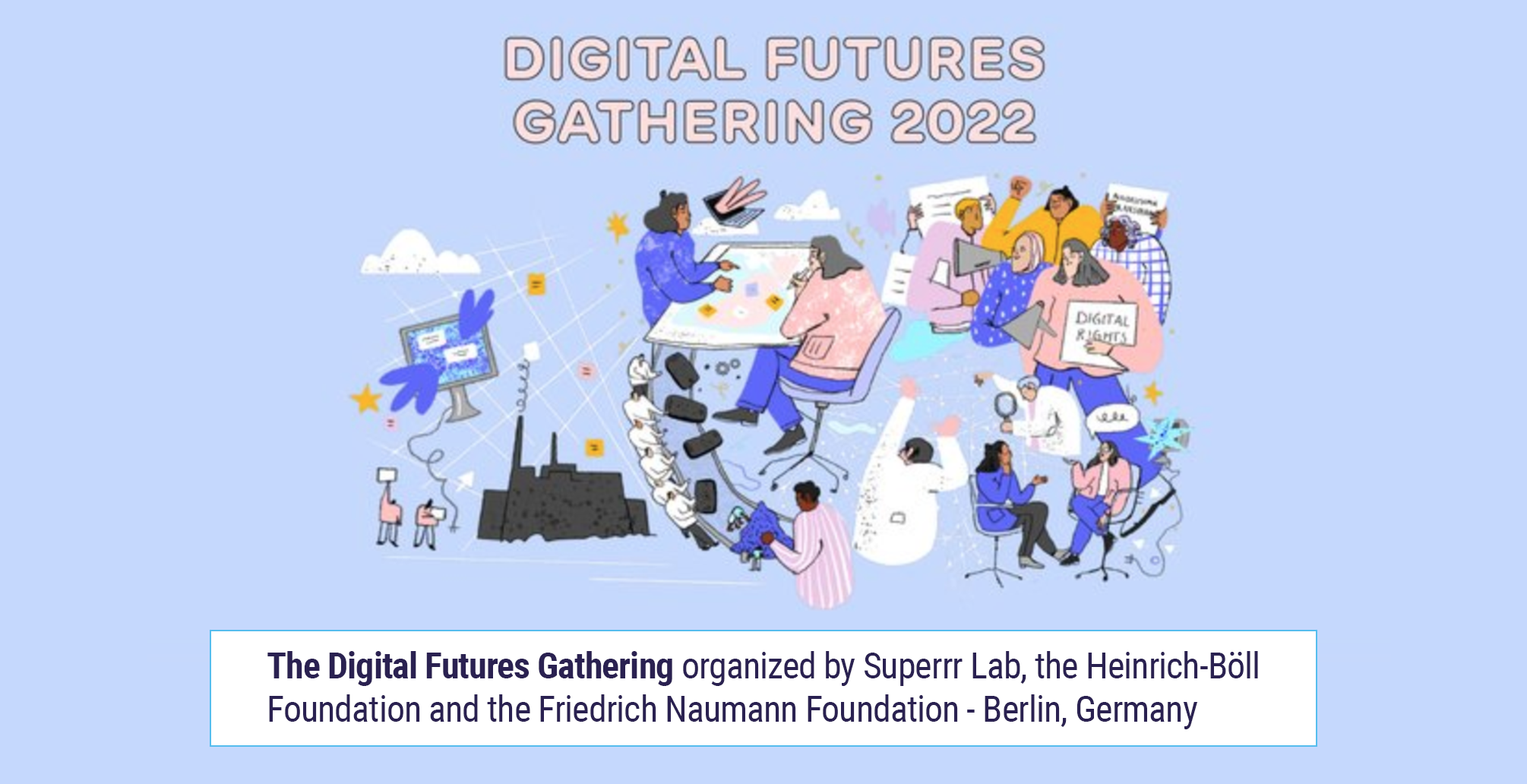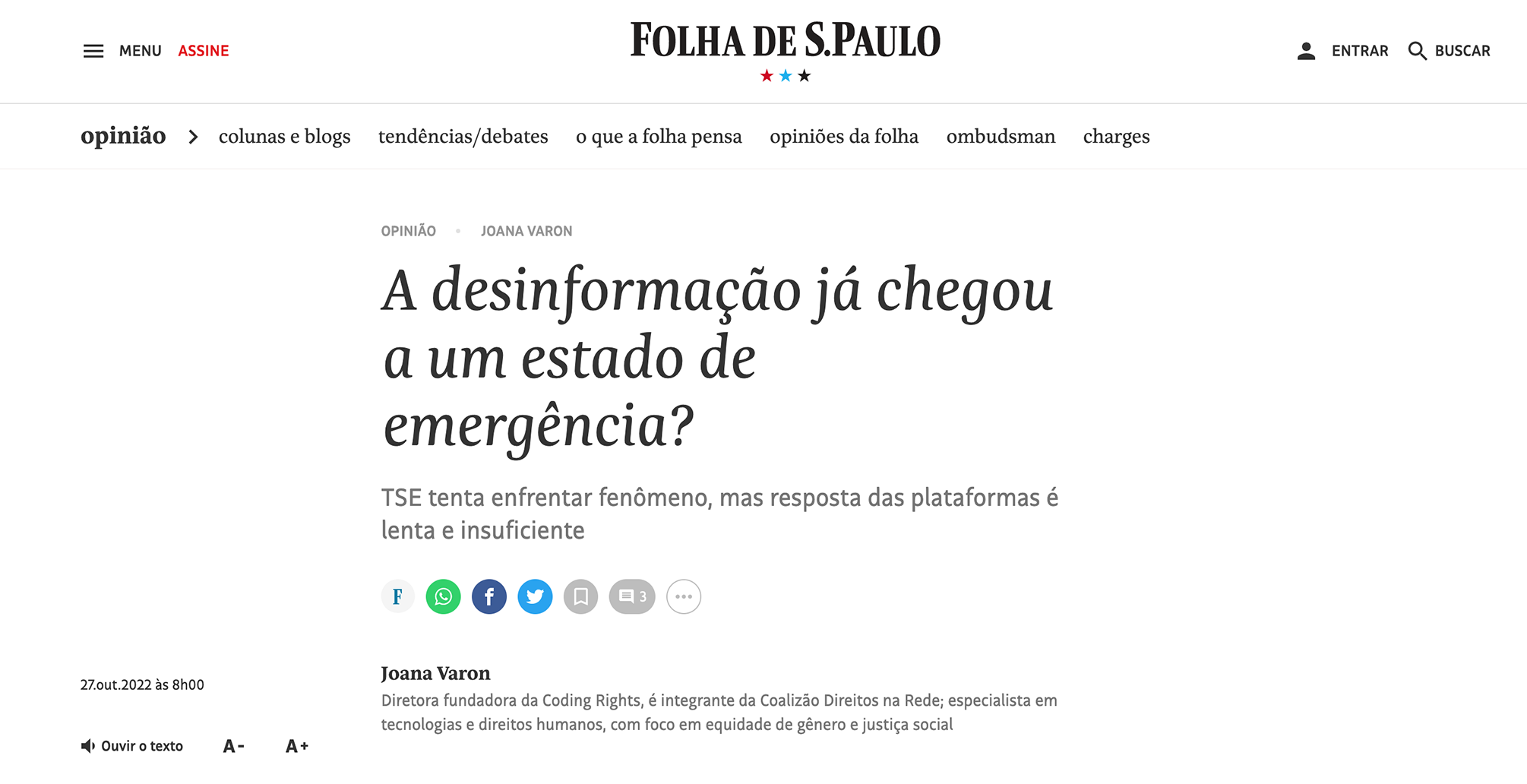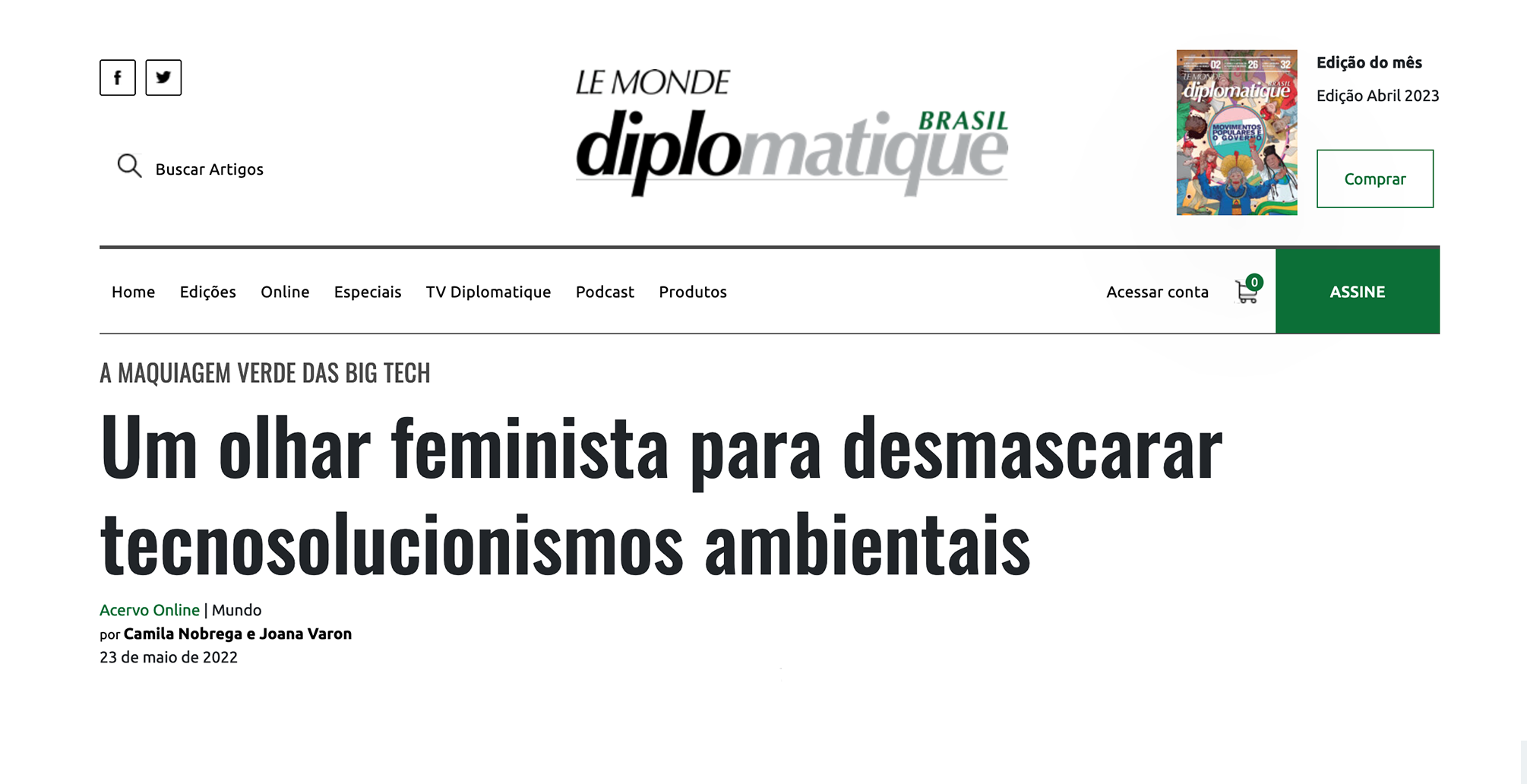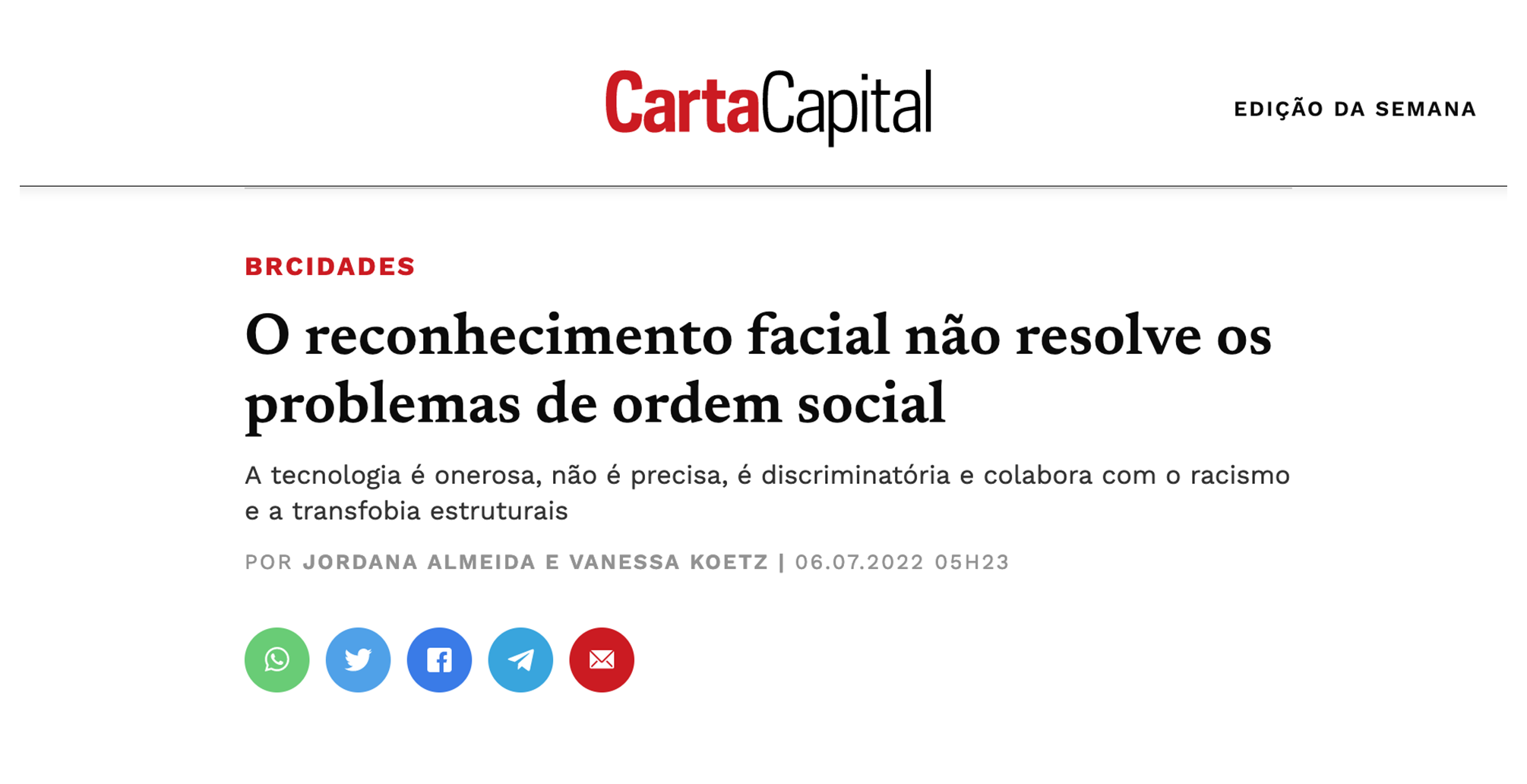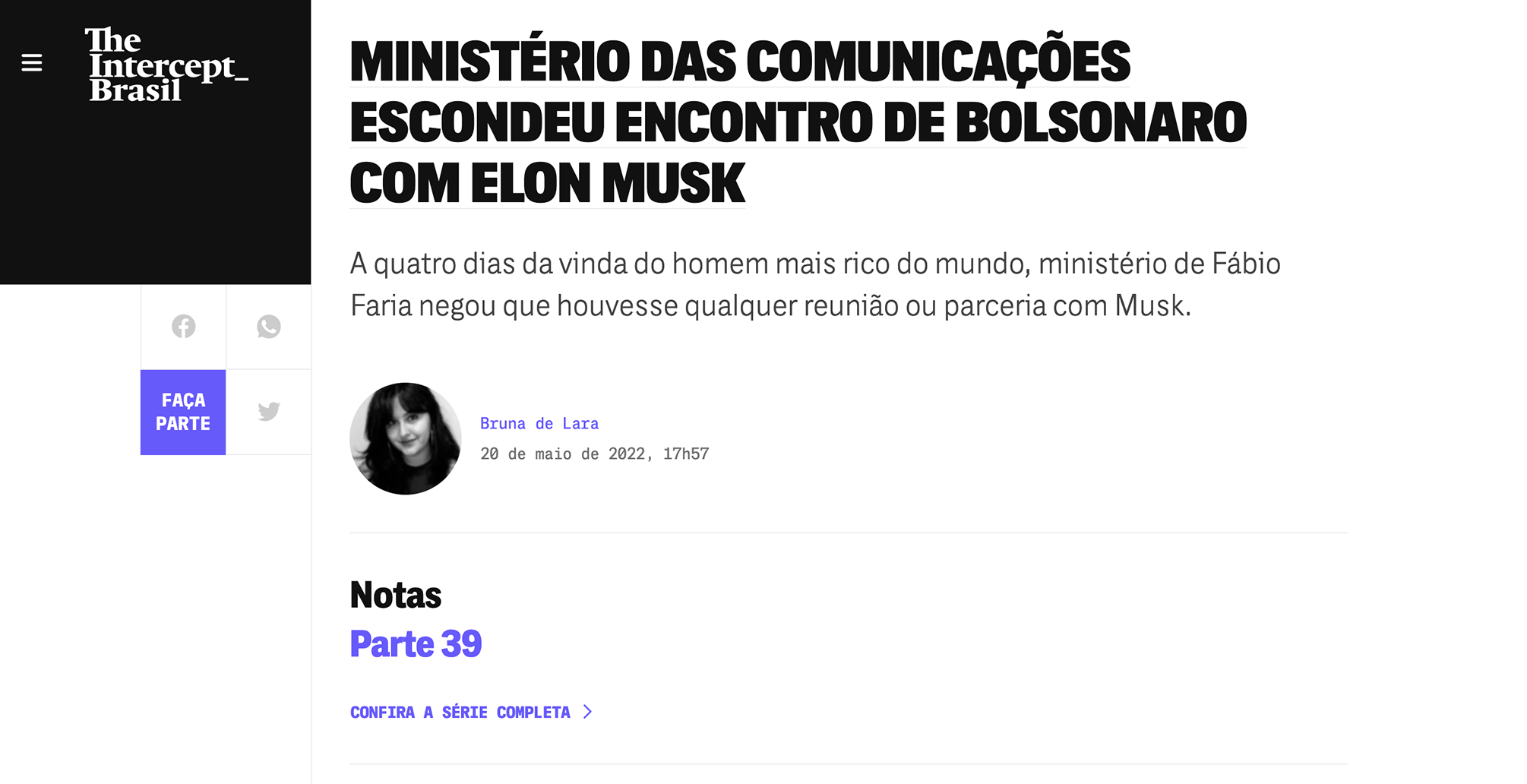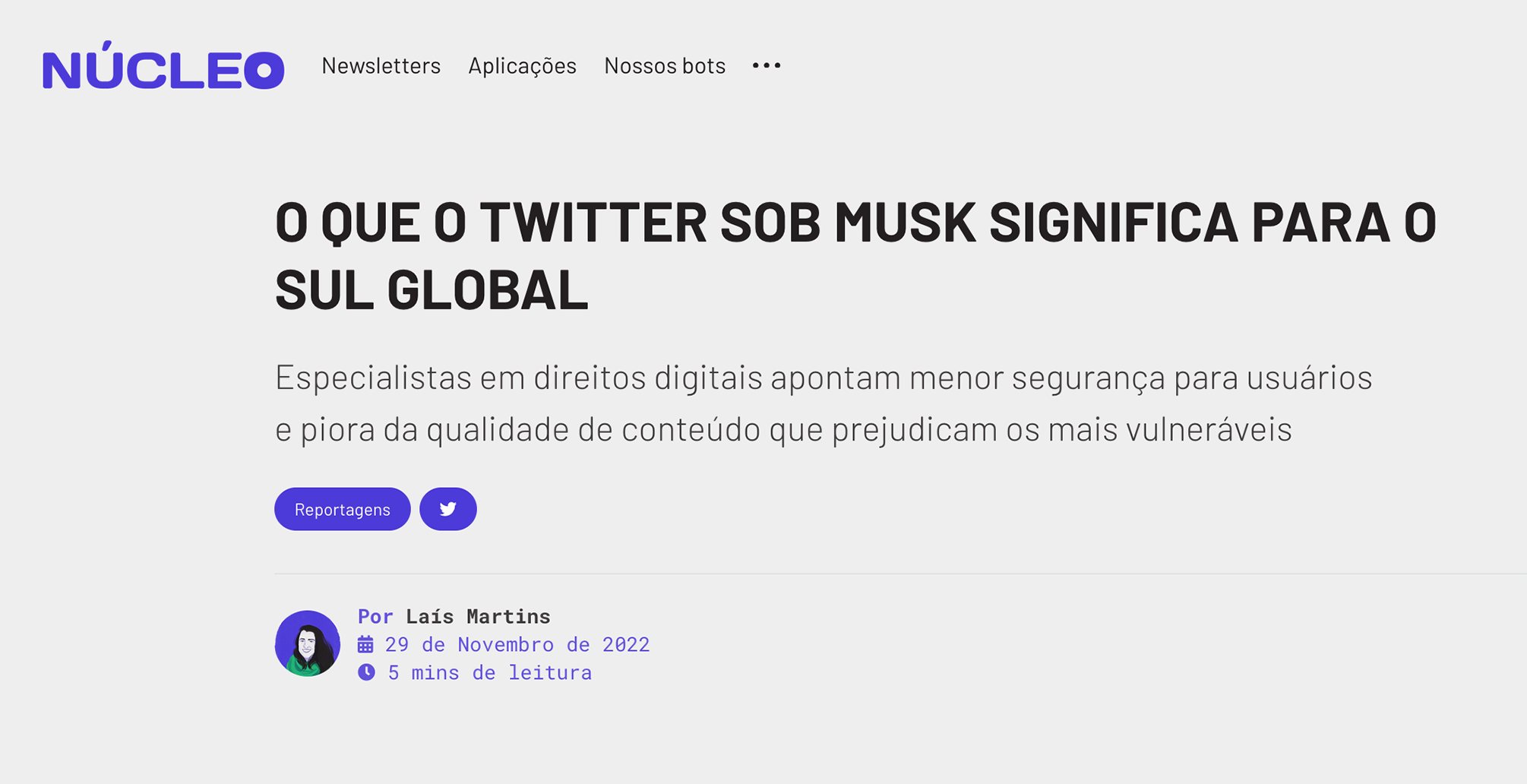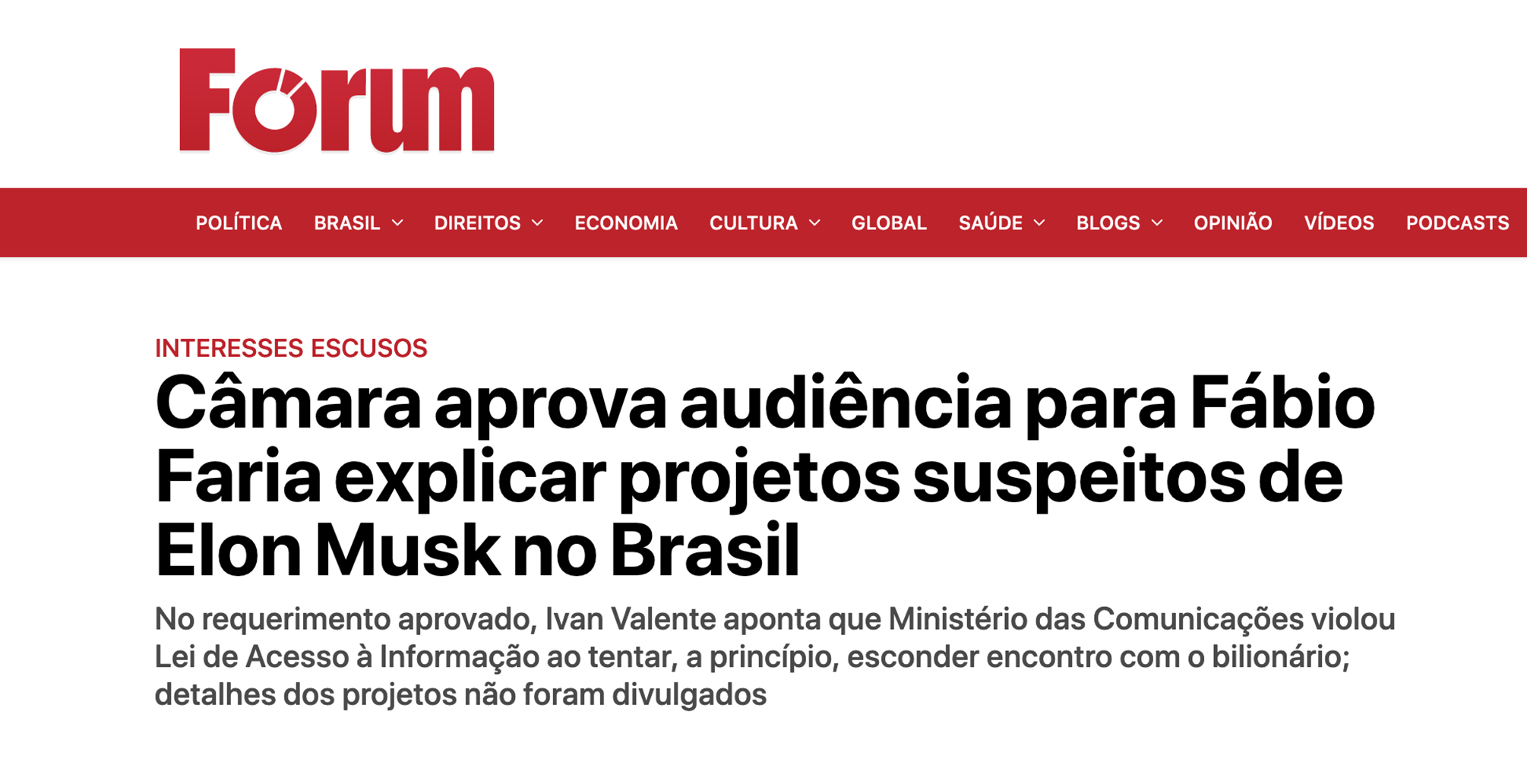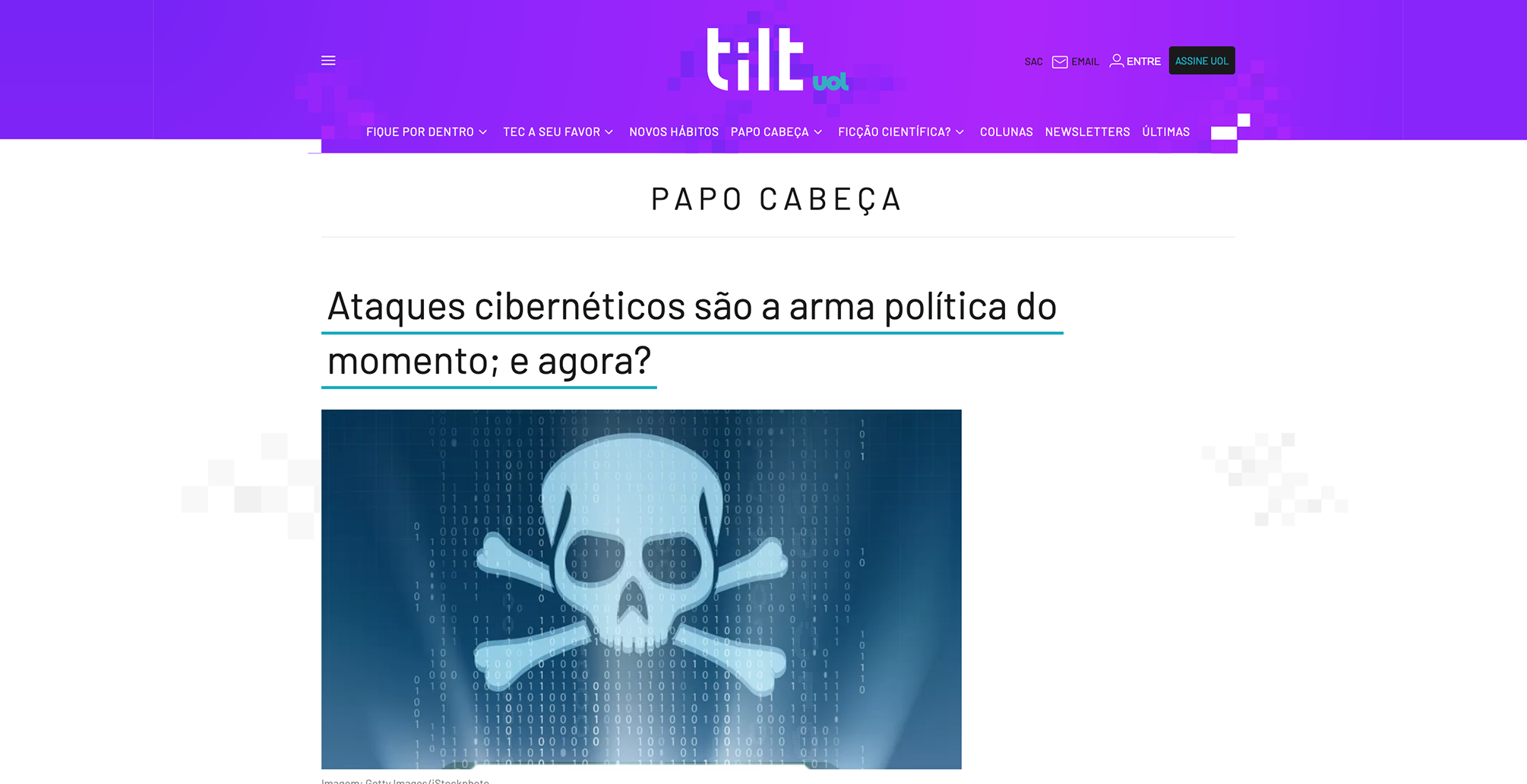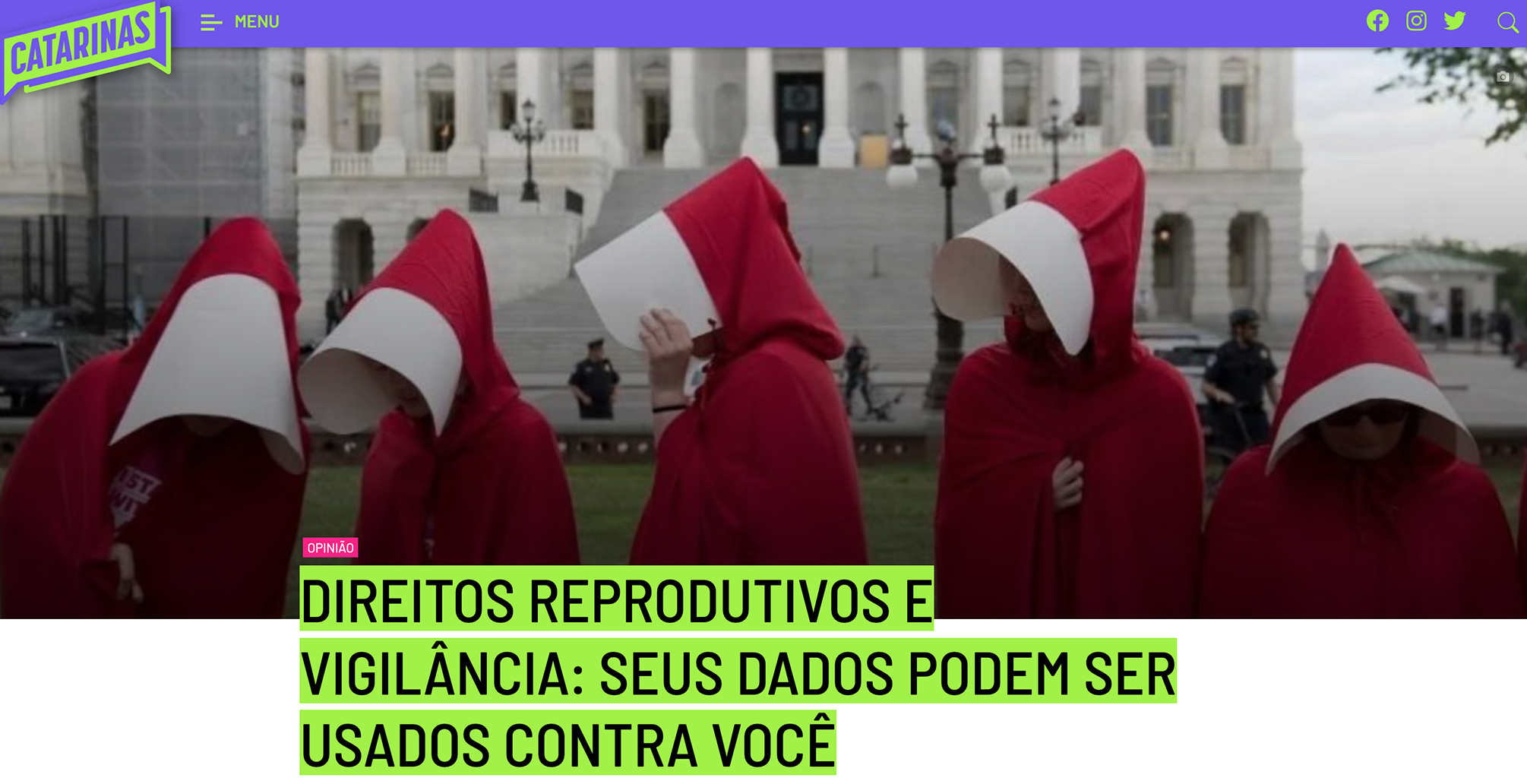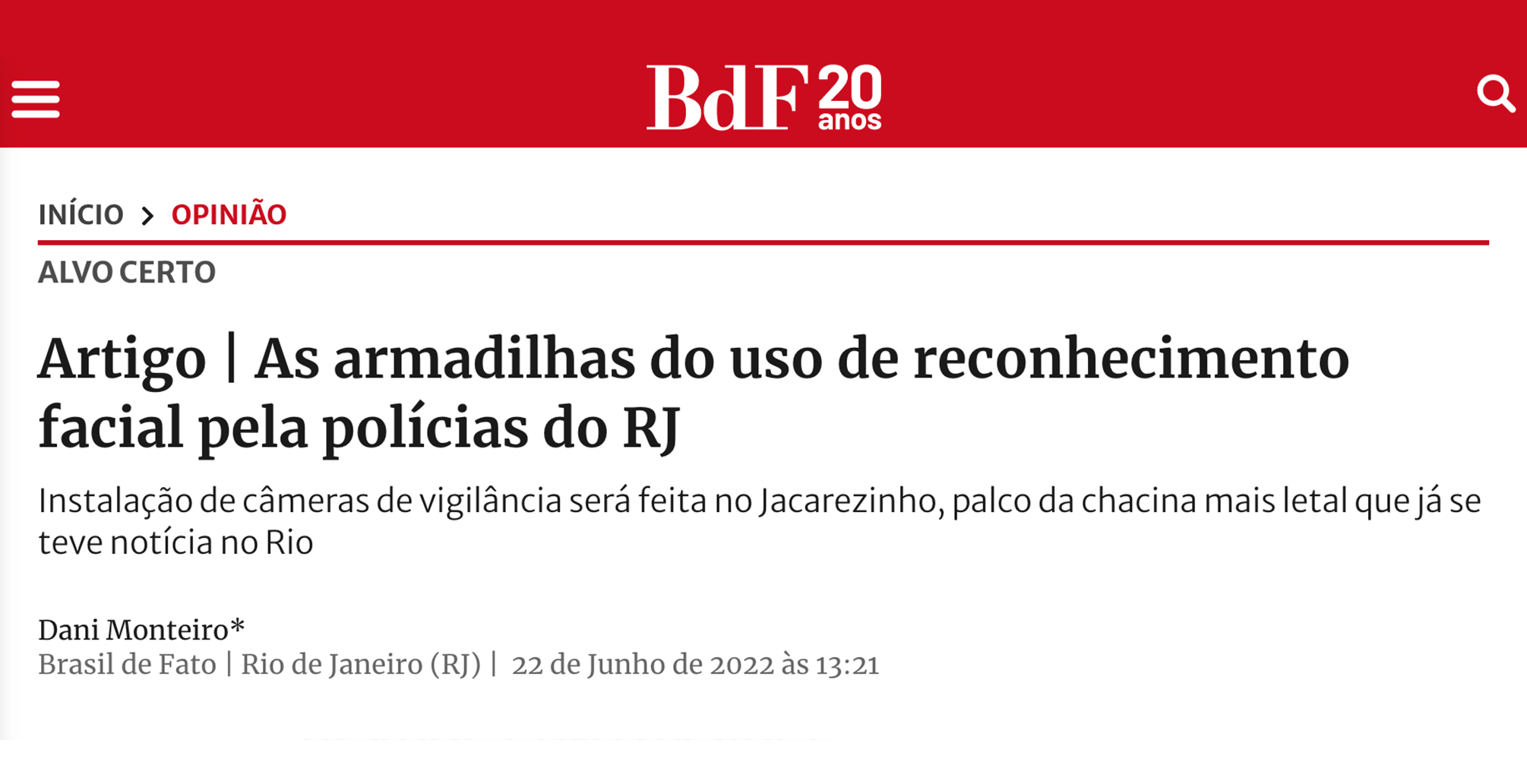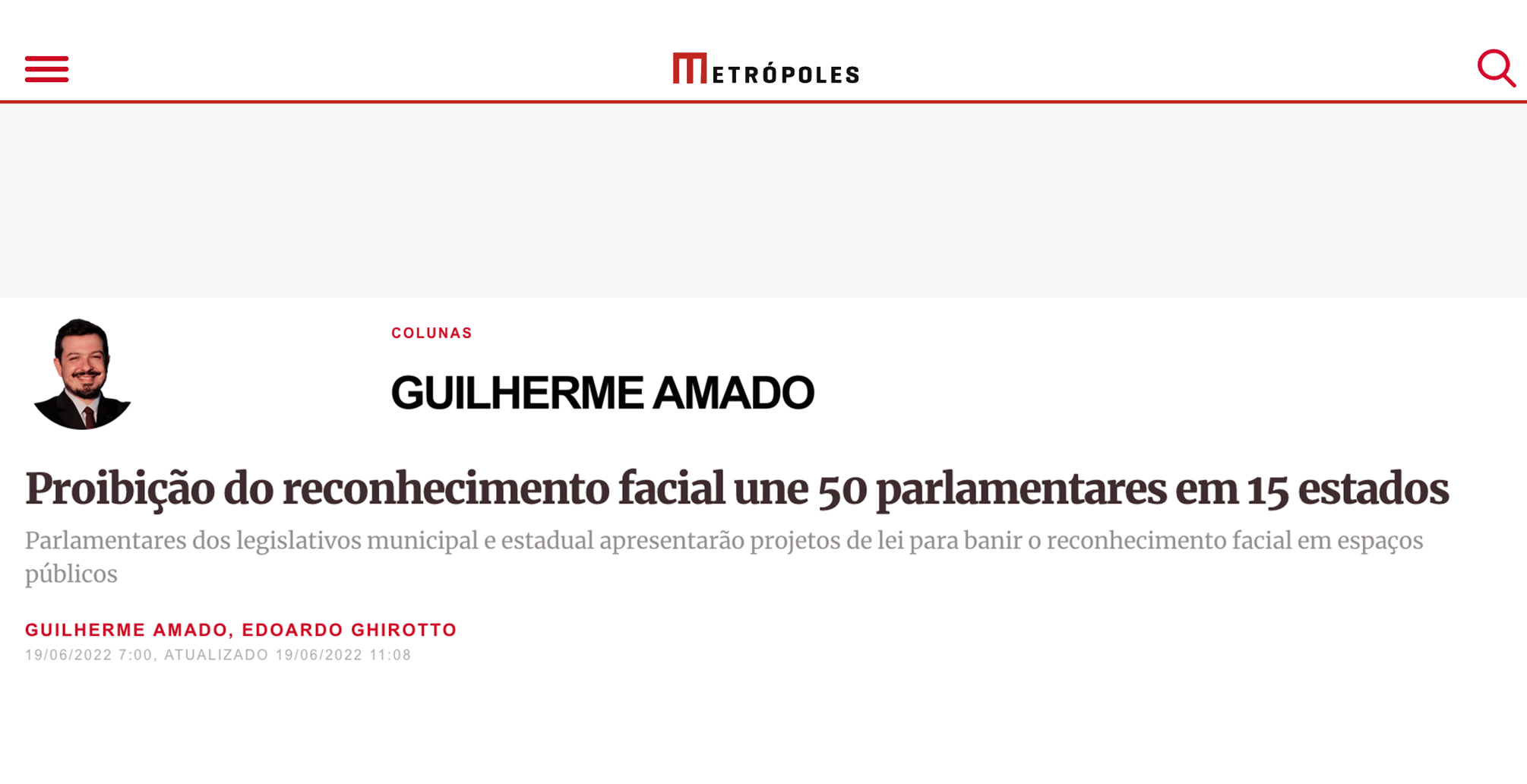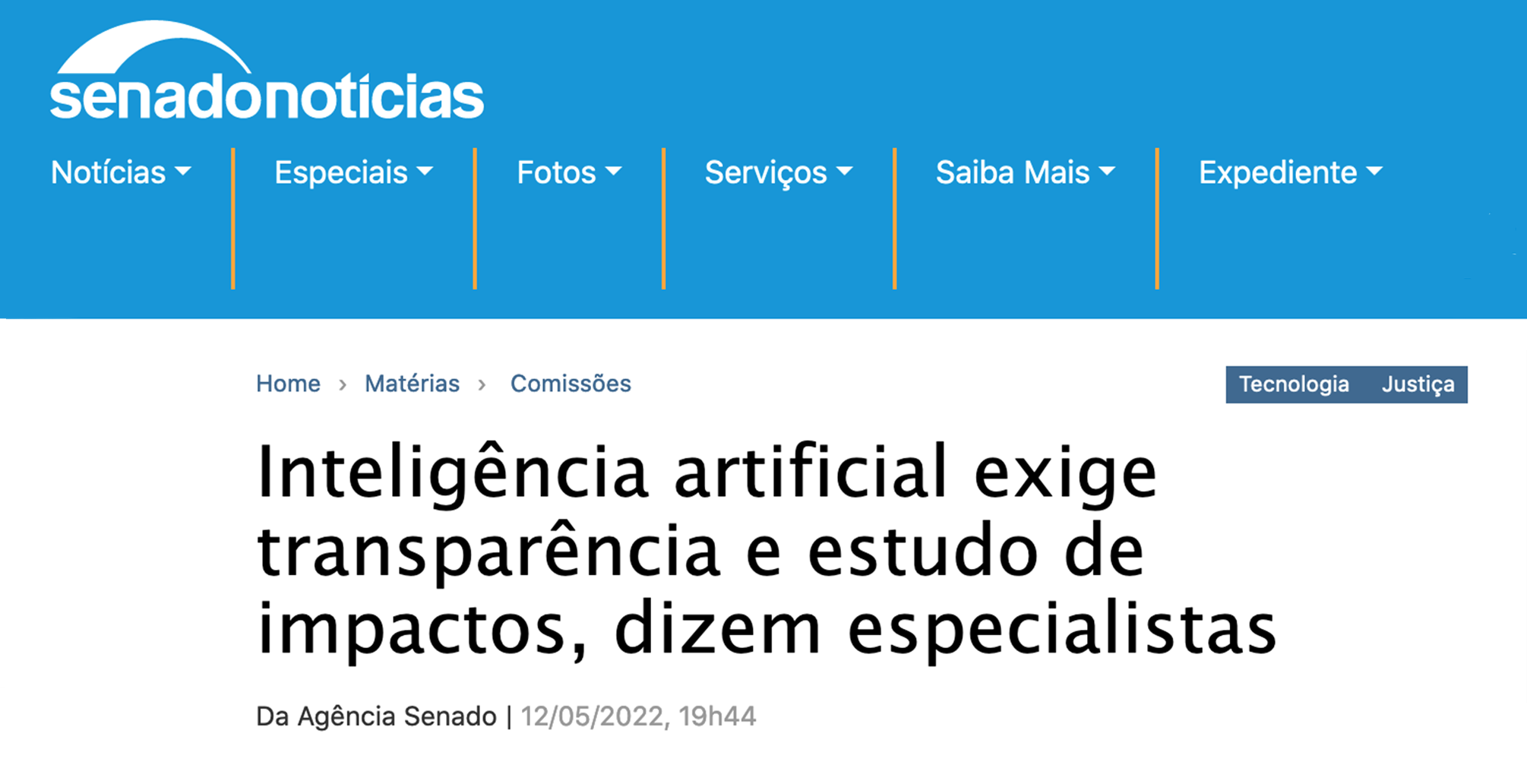PROJECTS ON TECHNOLOGIES, BODIES & TERRITORIES
Digital technologies are gradually integrating our bodies and territories. Terminologies such as Biometric Identification, Smart Cities, Big Data, A.I, the Internet of Things and VR are gradually showing up in public discourses as innovative solutions to improve public services and national security, but they can also pose a significant threat to citizen's privacy, freedom of expression, right to association, among others, besides leaving us all vulnerable to yet unknown kinds of cyber attacks. How do we walk freely in a territory surveilled by both companies and governments? How are all these new technologies changing our relations with our bodies and the territories we inhabit? Who is mining the data we produce in these relations? Who profits from it? Are we restating colonial relationships disguised as innovation if we consider the territoriality of the production cycle of all the electronics we consume? If we consider the social environmental impact of the extractivism and mining of electronic components, of the amount of electricity spent on a wide quantity of servers needed in a surveillance capitalism economy and of disposal e-waste, how sustainable it can be to keep scaling up the production of the amount of programmed obsolescence technologies what we consume today? Are smart cities actually meant to be fueled by social environmental conflicts, colonialism, and waste?
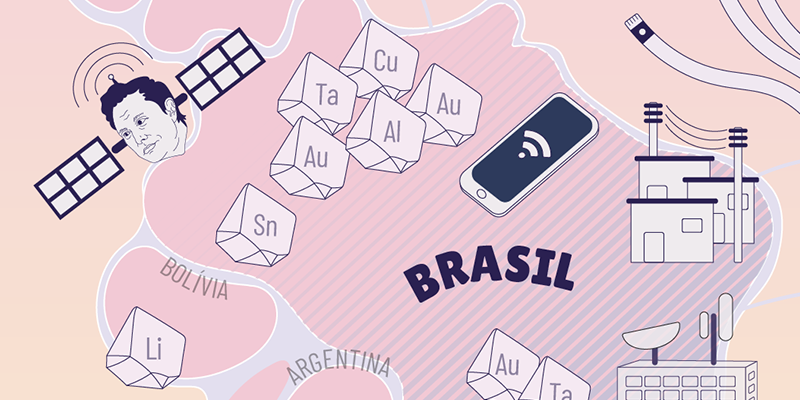
Platform: Map of Internet Territories
The Internet Cartographies is a platform to kickstart a debate about technology development that goes beyond the field of ‘digital rights’ to encompass the concepts and concerns of feminisms, climate change, and socio-environmental justice movements. Developed by Coding Rights with the support of Heinrich Boll Stiftung Brazil, the Map is a work in progress initiated through a workshop held in partnership with the Transfeminist Network of Digital Security Trainers during the Panamazonic Social Forum – FOSPA, hosted in Belém do Pará, Brazil, in July 2022. An online version of the map was released in November 2022. Before that, the map was presented in a workshop about Digital Futures, in Berlin and in a workshop in Mexico with Tierra Comun Network. The map is currently available in Portuguese and English, and soon in Spanish, and this project will continue in 2023 in order to foster interdisciplinary debates about the materiality of technologies.
Access the platform here.

Platform and Workshops: "Why is Artificial Intelligence a feminist issue?"
This is the key question of Not My A.I., an ongoing project that seeks to contribute to the development of a feminist toolkit to question algorithmic decisions making systems that are being deployed by the so-called Digital Welfare States. In partnership, Paz Peña and Joana Varon, with support from FIRN - Feminist Internet Research Network, from APC, mapped a series of AI projects being deployed by the Public sector in Latin America and developed a feminist framework to question these systems. Based on this framework, they held a series of workshops, first focused in Brazil, with the support of Heinrich Boll Stiftung Brazil, and throughout 2022, the focus was feminist networks in Latin America, with support from Access Now, what also enabled us to launch a media resource center in the platform, which contains a wide range of material, including zines, podcasts and videos, as well as agendas and possible workshop structures. Besides regional workshops, in 2022, the project was presented in the Deep Dive on Human Rights and Inequality in the Digital Century, organized by Harvard’s Advanced Leadership Initiative, and in regional debates on AI and Feminisms in the FairLac network. And also informed the public hearings of the Brazilian Senate for national regulation of AI in Brazil.
Access the platform here.

Research: "Whatsapp pay: The next frontier for the expansion of data monopoly"
This analyzed the pilot implementation of Whatsapp Pay in Brazil. The country is the second in the world to implement this service, the first was India. Data colonialism? Beyond data protection debates, this case is fascinating because it (finally) raised the attention of Brazilian competition authorities about Facebook (Meta)’s monopolistic position and exposed the need for cooperation within regulatory authorities on data protection, competition law and consumer rights. It was launched on the webinar "What about online payment architecture and Big Tech? Data protection and competition", organised by Coding Rights and Derechos Digitales, at Rightscon with the participation of Michel Souza (Derechos Digitales), Vanessa Koetz (Coding Rights), Camila Leite (IDEC) and Dev Lewis (Digital Asia Hub). Currently published in Portuguese and written by Vanessa Koetz, Bianca Kremer and Joana Varon with support from Derechos Digitales.
Read the research here.

Campaign: #SaiDaMinhaCara - Banning facial recognition in public spaces
More than 60 parliamentarians stood up against the implementation of facial recognition in public spaces and public security, filling bills for banning this sort of technology across the country. The #SaiDaMinhaCara initiative demonstrated a cross-party consensus in prevent the implementation of this invasive and discriminatory technology sponsored by governments. With this action, Brazil joins other countries in moving to restrict facial recognition. The initiative was supported by Coding Rights, Medialab da UFRJ, LAVITS Network, the Brazilian Consumer Defense Institute (IDEC), and the Center for Studies on Security and Citizenship - CESec, organizations specialized in technology, security, and human rights.
Check the campaign here.

Article: "Facial Recognition in Brazil: A gender and race-based perspective"
Article by Bianca Kremer, data protection and feminisms fellow at Coding Rights in ADAPT Project (Advocating for Data Accountability, Protection and Transparency), originally published in English on the ADAPT/Internews website.
Read the original publication here.
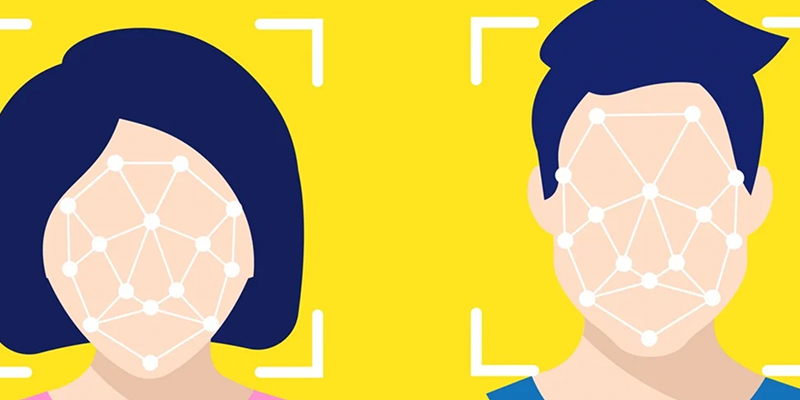
Article: Facial recognition does not solve social problems
Article by Vanessa Koetz and Jordana Almeida published in Portuguese on Carta Capital. The justifications for the implementation of facial recognition are appealing: smart cities, “progress”, searching for people wanted by justice, looking for missing people – but facial recognition technology is costly, inaccurate, discriminatory, contributes to structural racism and transphobia in Brazilian society and to mass surveillance of the population.
Read the article here

Article: "A critique of smart cities: what they are and who they (theoretically) serve"
The article discusses the use of technologies, especially facial recognition, in urban spaces, contributing to an urban construction that tends to a neoliberal and militarized project, under the argument of the need for "smart cities". Developed under project Adapt, the article written by Vanessa Koetz was originally published in English on the ADAPT/Internews website.

Article: "A maquiagem verde das Big Tech: um olhar feminista para desmascarar tecnosolucionismos ambientais"
The article written by Joana Varon and Camila Nobrega is an updated version in Portuguese of the text “Big tech goes green(washing): Feminist lenses to unveil new tools in the master’s houses”, published on the Le Monde Diplomatique Brasil. The original text was published on APC’s Giswatch.
Read the updated version here.

Article: "Technological Cartographies - Digital Colonialism in the Internet’s Territories"
The Internet is nothing like a cloud. It is a physical structure, geolocated and marked by power relations. The magical narrative of ‘the cloud’ feeds an imaginary that exists in the absence of a place or territory, and envisions the Internet as something immaterial, abstract, timeless and apolitical. But the internet is a disputed territory. These disputes affect the future of our democracies and which paths toward climate and socio-environmental justice are open to us. To better know a territory, a map always helps. That is the topic of this article, written by Joana Varon and published at Digital Futures, a platform held by SuperrrLab.
Read the article here.

Short Research: "Monitoring the ongoing dialogues between Elon Musk and the Brazilian Ministry of Communications"
After Elon Musk's meetings with Brazilian Minister of Communications Fábio Faria in Texas (USA), in November 2021, we have investigated through FOIA requests whether there were meetings scheduled or agreements under negotiations between the billionaire and the Brazilian government. Despite the negatives by the government, President Jair Bolsonaro attended an event organized by the Minister of Communications with the presence of the billionaire. Bolsonaro and the Minister announced a possible partnership with Elon Musk in the Starlink project. This was the topic of a hearing at the Financial Inspection and Control Commission of the Chamber of Deputies. The author of the proposal, Deputy Ivan Valente, quoted the dubious answers by the Minister received in the FOIA requests made by Coding Rights in order to request the hearing. The fact gained more visibility when it was also reported by The Intercept Brasil.
Read the research here.
HACKING PATRIARCHAL VIOLENCES & ENVISIONING FEMINIST FUTURES
Technologies are normally designed and embedded with subjective values from the ones who develop them. Therefore, the future is likely to replicate many of the inequalities that social justice movements fight against if we do not expose the intersectional power imbalances, pertaining race, gender, class, etc, as well as the geopolitics, behind digital technologies. To redress this scenario, this area has the goal to map different expressions of patriarchy into the development and usage of digital technologies, engage in processes for awareness raising and political change, as well as to promote exercises of speculative futures and experimentation in which technologies can be developed under transfeminist values. Here are some of 2022’s outcomes from our work in this area:

Podcast: "Are You Reading My Mind?"
What would you do if you knew they were reading your thoughts? The episode "Are You Reading My Mind?" is part of the second season of the Privacy is Global podcast. In this story, Sofia enters a library in Rio de Janeiro looking for an Octavia Butler book but ends up finding a portal to interact with her future self. That is when she is told about a time in which thoughts can be transparent... This story co-written is by Joana Varon and Lucía Egaña Rojas and produced by Coding Rights in partnership with ADAPT for the series Privacy is Global, it is available in English and Portuguese. Sponsored by Internews and Heinrich-Böll-Stiftung Washington DC.
Check the project here.
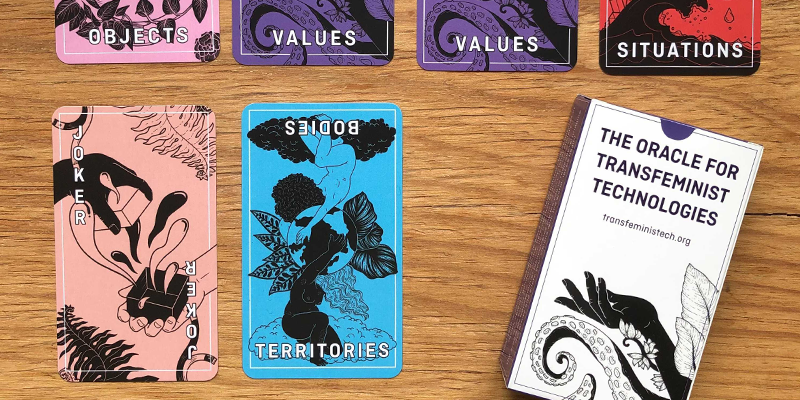
Platform: the Oracle for Transfeminist Technologies
In 2022, we continued to hold a series of workshops using the Oracle: among other meetings, we gathered to play it at the play session of the Toronto Womxn in Data Science Conference and in the immersion of the Transfeminist Network of Digital Care. Translation of the Oracle – which is already available in Portuguese, Spanish and English – into German in cooperation with partnerships from the SuperrrLab. Furthermore, text on the Oracle of Transfeminist Technologies is to be published in MIT Press’s book Feminist Designer Book.
Check the platform here.
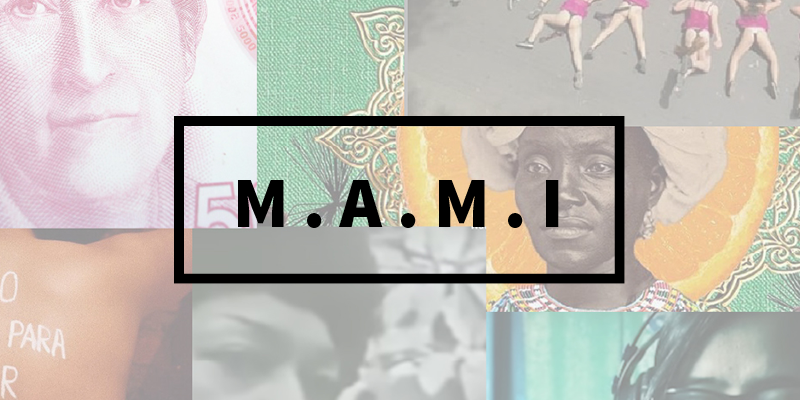
Platform: M.A.M.I. Museum
A museum from the future, set in 3021 to exhibit pieces of feminist resistance against different forms of patriarchal violences. The idea for this project emerged in a workshop in Santiago de Chile, with a group of feminists artists and activists and support from Hivos. Throughout 2022, we worked to solve infrastructure issues of the platform to ensure that the partners from the Matronato of the musea could facilitate workshops, which were held independently by Lucia Egana Rojas and Cony.
Check the platform here.

Conference: “The Future Of Code Politics II: Technologies of radical care” at International Summer Festival Kampnagel in Hamburg
For the second consecutive year, Joana Varon and Lucía Egaña curated two sessions in the event. The program was made in collaboration with Joana Varon, Lucía Egaña, J. Khadijah Abdurahman, Gracen Brilmyer, Lorena Jaume-Palasí e Lena Kollender. The opening panel brought together the curation team to discuss new visions and futures for artificial intelligence, algorithms and codes. Joana and Lucía Egaña curated the sessions “Lost in Translation I: Extractivism of bodies and territories” with texts by Paola Ricaurte, Paz Peña, Moira Millán and Mariah Rafaela Silva perfomed by Kupalua, Génesis Victoria, Eli Wewentxu and Yela Quim. And the session “Lost in translation II: Decolonizing our imaginaries about Techs” with texts by Denise Alves-Rodrigues, Lu Ain-Zaila and Gabriela Damián, performed by Kupalua, Yela Quim, Génesis Victoria, Eli Wewentxu and Thaina Iná.
More on the festival here.
DIGITAL SECURITY
With the increase in digitalization, which was also particularly accelerated during the pandemics of COVID-19, we have also observed an increase in online violence with severe consequences to offline activities of human rights activists. In Brazil, this scenario is even more challenging considering the rise of far-right groups who are tech savvy and use digital environments as battlefields attacking women, LGBTQIA people, black activists, sexual and reproductive rights advocates, land defenders, activists from the favelas and other communities that question the status quo of the white cis male heteronormativity of the dominant capitalist society. This trend, aligned with the business model of mainstream social media platforms, which is focused on turning hate into profit, results in digital environments prone to gender-based political violence, hate, threats and misinformation. In this area we focus on keeping track of emerging manifestations of digital violences and fostering a technopolitical and critical view of the tools we use for our daily activism, so we can have a more careful and strategic use of them and gradually shift towards supporting feminist infrastructures.

Workshops on Digital Security and Misinformation for communicators, educators and families
Misinformation and hate speech have spread rapidly and steadily in the digital space, a harmful phenomenon that gradually poisons the spheres of public debates and challenges the future of our democracies. In this context, Coding Rights held a series of three free and online learning sessions on Digital Care, based on and localizing the content of the Digital Enquirer Kit (DEK), an e-learning platform developed by Tactical Tech. Facilitated by Paula Martini (Internet das Pessoas) and Joana Varon, the workshops had two target audiences: (i) educators and families and (ii) communicators and journalists. The workshops were developed with support from Deutsche Gesellschaft für Internationale Zusammenarbeit (GIZ) GmbH.

Workshop “Like, comment and share: tactics on social media for collectives and social movements”
On December 12, 2022, Coding Rights held this workshop for communicators from civil society organizations, collectives and social movements. The goal was to foster a critical and technopolitical approach to social media and collectively discuss strategies to occupy social media. The workshop was facilitated by Agnes Viana, Juliana Marinho and coordinated by Juliana Mastrascusa for Coding Rights, with support from Hivos.

Safersisters 07/ Safermanas 07
launching of Safersisters episode number 7, a short educational video addressing the differences and how to recognise Deep fakes and Cheap Fakes (published both in English and Portuguese).
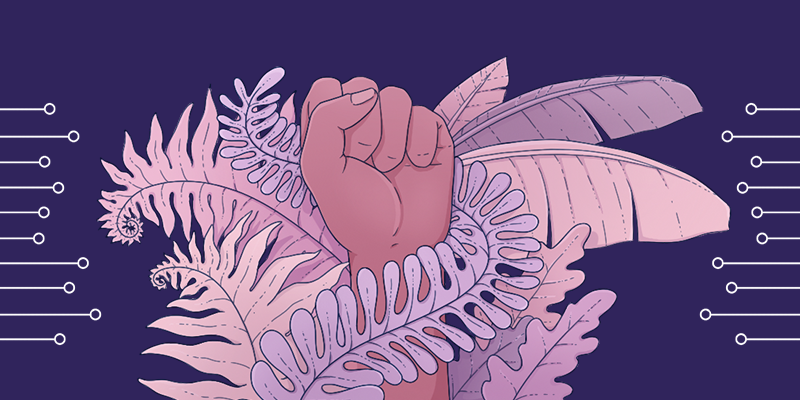
Observatory of LGBTI+ Violence in Favelas
Through community engagement, this Observatory was the goal to map and monitor violences targeting LGBTI+ people living in favelas of Rio de Janeiro. Conducted by Grupo Conexão G, with the support of Fundo Brasil and the Universities of Manchester, Coventry, PUC-Rio and Universidade Federal do Rio de Janeiro, it is developed also in partnership with DataLabe, Race and Equality and Coding Rights.
EMERGENCY RESPONSES TO PUBLIC POLICIES
Sometimes, shifts in the political context requires emergency actions that turn research into advocacy. This is what this area of work is about. And, as the internet is global, we nurture national, regional and global coalitions and/or networks to have strategic and collective engagement within policy makers in national, regional and international fora. Furthermore, we have also observed a growing demand for building digital security capacities and giving support during attacks due to the increase of threats against women, LGBTQI people, artists, journalists and activists in Brazil. To reply to this scenario, we have co-started a Network of Transfeminist Digital Security Trainers in Brazil to cope with the need for such emergency responses.

Engagement in the public consultations about AI regulation
In 2022, the Brazilian Senate established a Comission of Jurists to propose a draft bill to regulate artificial intelligence. Through out the year, the Comission held a series of hearings and consultations. Coding Rights had the opportunity to engage by speaking in a session of a public hearing and submitting inputs in the consultation. Our comments were incorporated in the final report by the commission. Access our contribution here.

Platform regulation and elections: Engagement at Sala de Articulação contra a Desinformação
Coding Rights joined SAD (Sala de Articulação contra a Desinformação), a network of researchers and activists from different backgrounds working to monitor far-right groups and narratives in social media channels that threaten elections integrity and pushes for violence against vulnerable groups. During this period, we had regular meetings for exchanging research diagnostics and also worked on several joint analyses.

Platform regulation and elections: Engagement on the working Group about Internet and Elections from Coalizão Direitos na Rede
We have engaged in this working group to draft joint analyses and statements:
_TECHNICAL EVALUATION: “Confronting disinformation strategies in the 2nd round of the 2022 Brazilian elections”: the draft of this evaluation was kickstarted by Coding Rights and submitted to Coalizão Direitos na Rede as an outcome of meetings held by the working group. The document was presented to the president of the Supreme Electoral Court
_OPEN LETTER: Protecting Brazilian democracy requires an assertive fight against misinformation.
_WEB SERIES: CDR VS FAKE NEWS: Interrompa a viralização.
_OPEN LETTER: Digital platforms cannot be a springboard for uprisings against the democratic order.
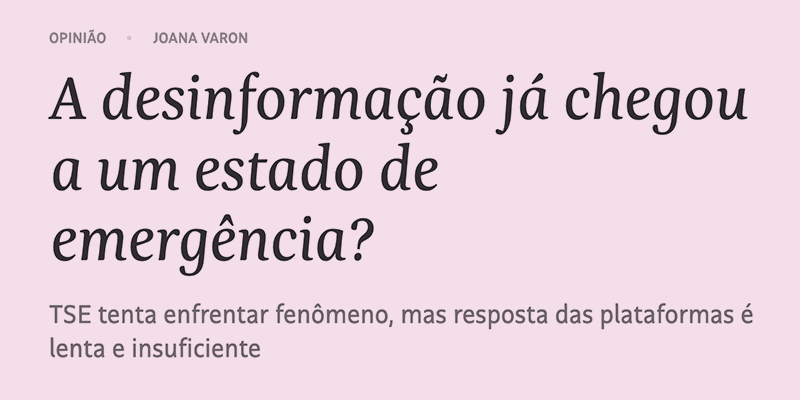
“Has disinformation already reached the state of emergency?”
On October 27th, Joana Varon published this opinion piece at Folha de São Paulo to discuss how Google, Twitter, Facebook, Youtube, and Instagram were lax and negligent towads content moderation in the Brazilian presidential elections.
Read the piece here.

Racism and transphobia in the facial recognition systems
Participation in the debate organized by PSOL’s Feminist Caucus in São Paulo’s City Council.

Internet Governance and Gender at CGI
Participation in the hands-on workshop held by the CGI to help attract subsidies and demands from women’s priorities in terms of more representativeness in the internet governance agenda in Brazil.
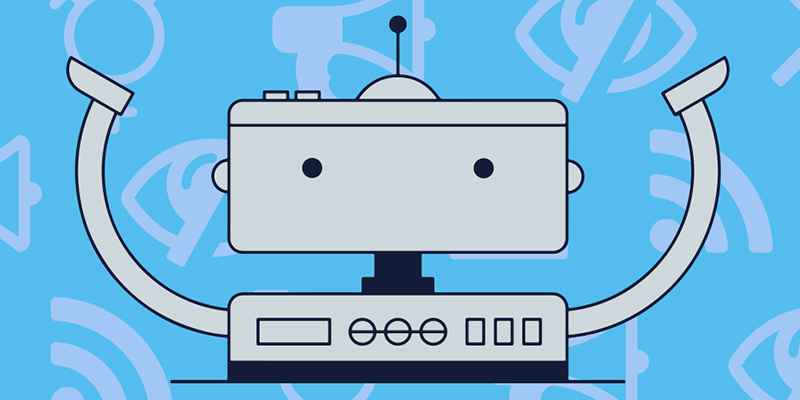
Radar Legislativo
Updates on the database of draft bills proposed in the National Congress related to technology and human rights. It was envisioned with the goal to capture the bigger picture of how digital rights are being in the legislative.
Access the platform here.

Monitoring the ongoing dialog between Elon Musk and the Brazilian Ministry of Communications
The goal was to understand if there were agreements under negotiations with the Brazilian government and the billionaire to boost Starlink in the country.
Read about it here.

Twitter under Musk
We engaged in the Al Sur's position against the closure of Twitter's Trust and Safety Council. Al Sur has been a member of Twitter's Trust & Safety Council for several years. The Twitter's Trust & Safety Council was an external group of human rights organizations and specialists that, since 2016, provided its advice and perspective regarding policies and practices adopted by Twitter.
ONLINE CONFERENCES AND WORKSHOPS IN 2022
CR team participated in more several conferences and workshops in Brazil, Latin America and around the world.
<< sidescroll for our highlights >>
AWARDS + FELLOWSHIPS IN 2022
Joana Varon, Coding Rights Founder Directress, was nominated by Ouano Foundation as one of the 20 Global Leaders of Digital Human Rights.
Renewed Tech and Human Rights fellowship within the Carr Center for Human Rights Policy at Harvard Kennedy School and affiliation at Berkman Klein Center for Internet and Society at Harvard Law School.
MEDIA IN 2022

12.7K
followers

10.4K
followers

4.6K
followers
CR team was interviewed or collaborated with at least 27 media articles from Brazil and around the world.
<< sidescroll for our highlights >>
FINANCIAL IN 2022
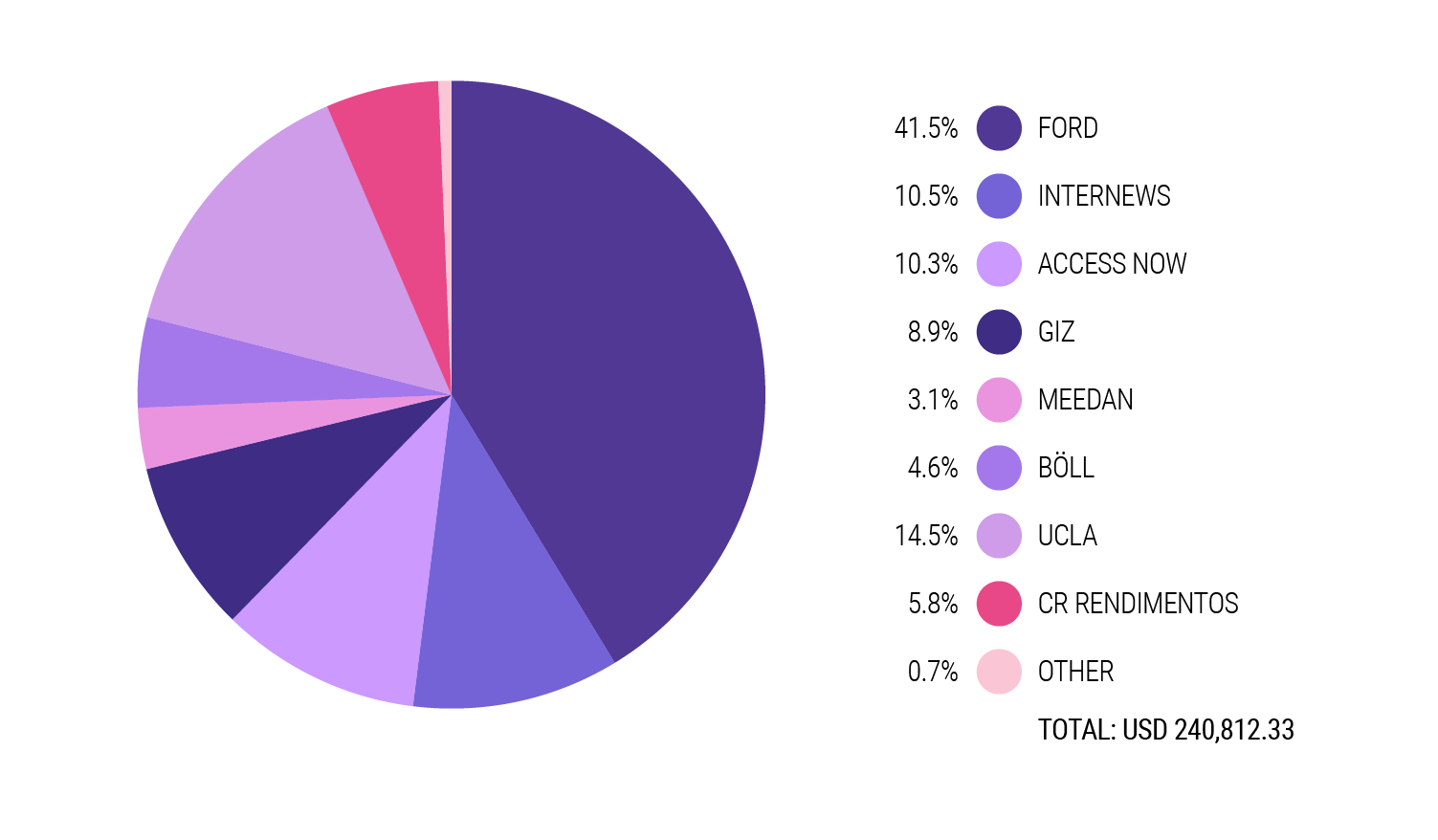
REGULAR ENGAGEMENT IN THE FOLLOWING NETWORKS IN 2021
Transfeminist Network of Digital Security Trainers
CORE TEAM 2022

JOANA VARON
EXECUTIVE DIRECTRESS
CREATIVE CHAOS CATALYST

JULIANA MASTRASCUSA
COMMUNICATIONS STRATEGIST
(until March 2022)

ERLY GUEDES
COMMUNICATIOS MANAGER

CLAROTE
ART DIRECTRESS
DESIGNER+ILLUSTRATOR

NANDA MONTEIRO
SYSADMANA
DIGITAL SECURITY

VANESSA KOETZ
PROJECT DIRECTRESS
FORMER FELLOW IN DATA PROTECTION AND FEMINISMS

BIANCA KREMER
FELLOW IN DATA PROTECTION
AND FEMINISMS (until June 2022)

MAX HOLENDER
FINANCIAL MANAGER
